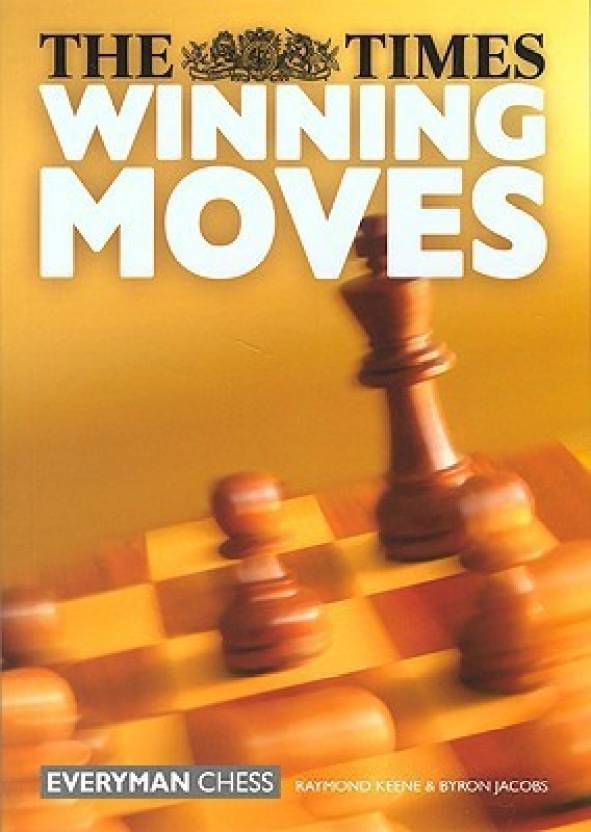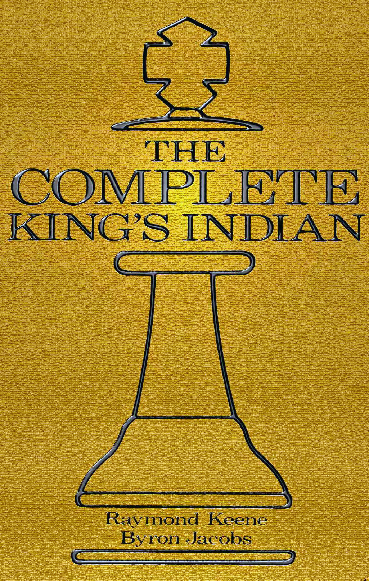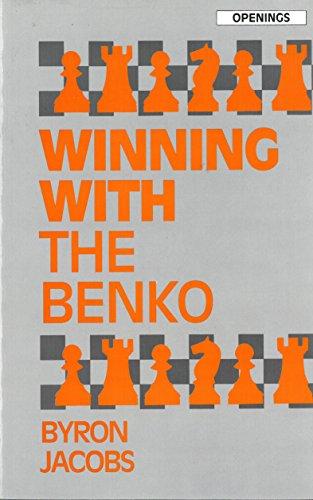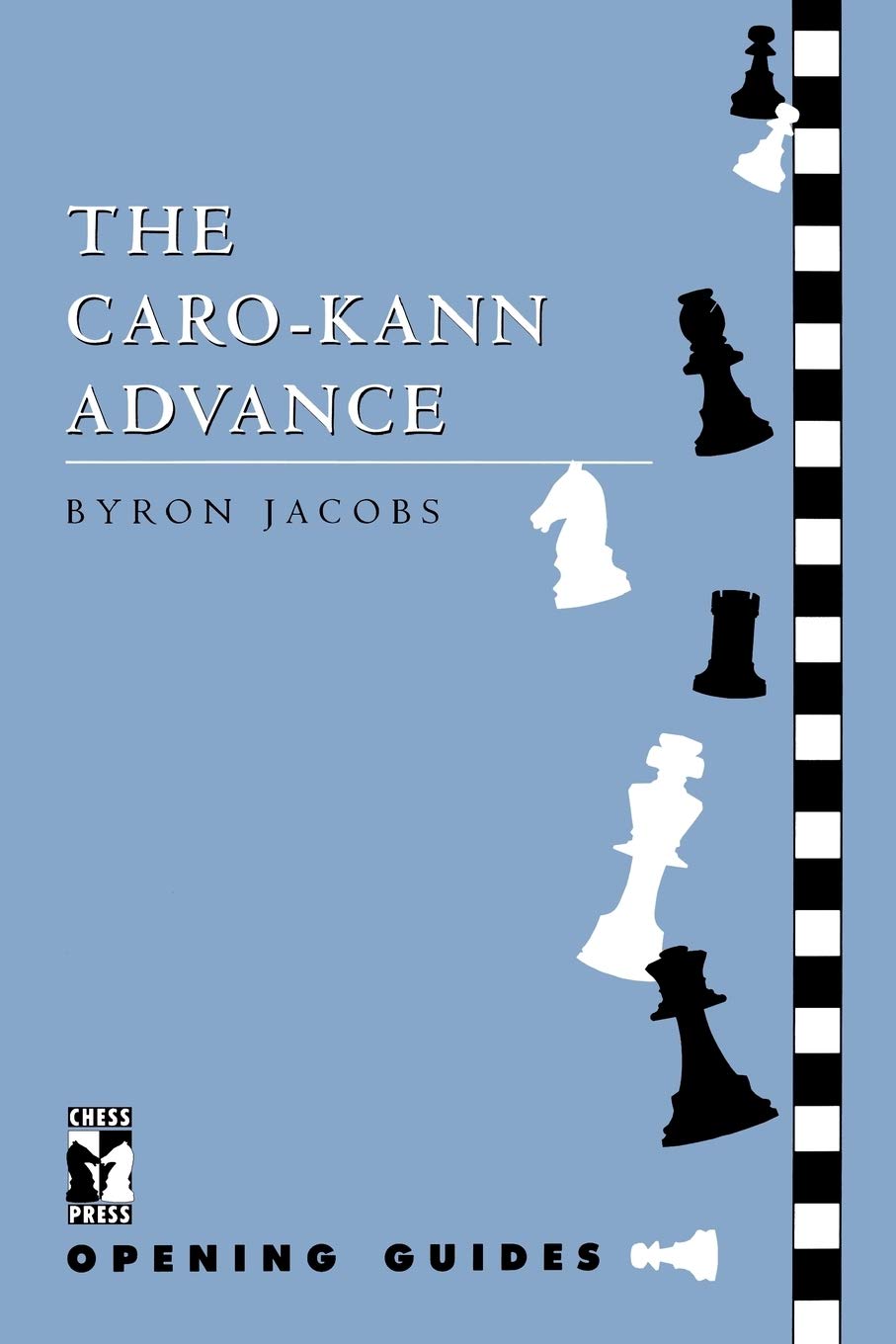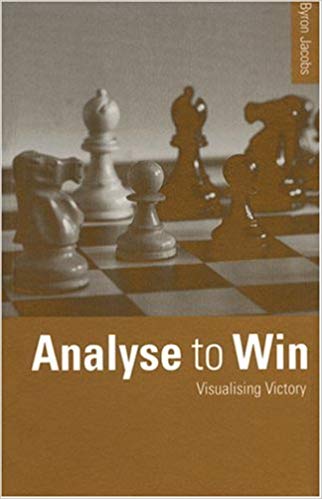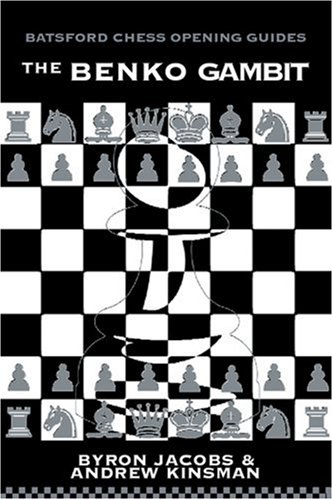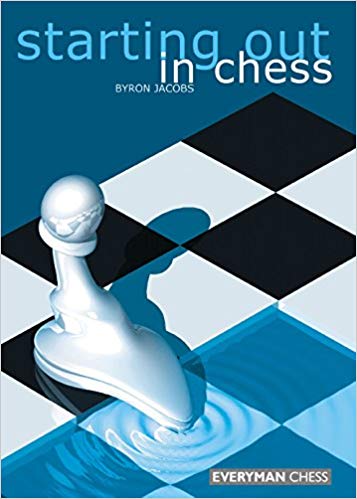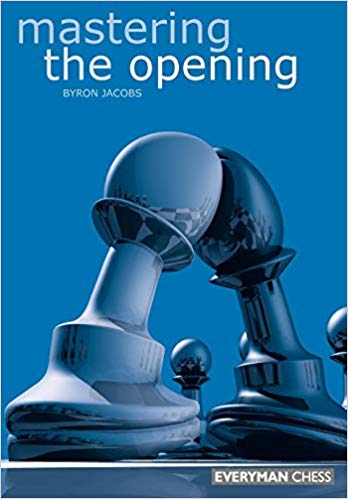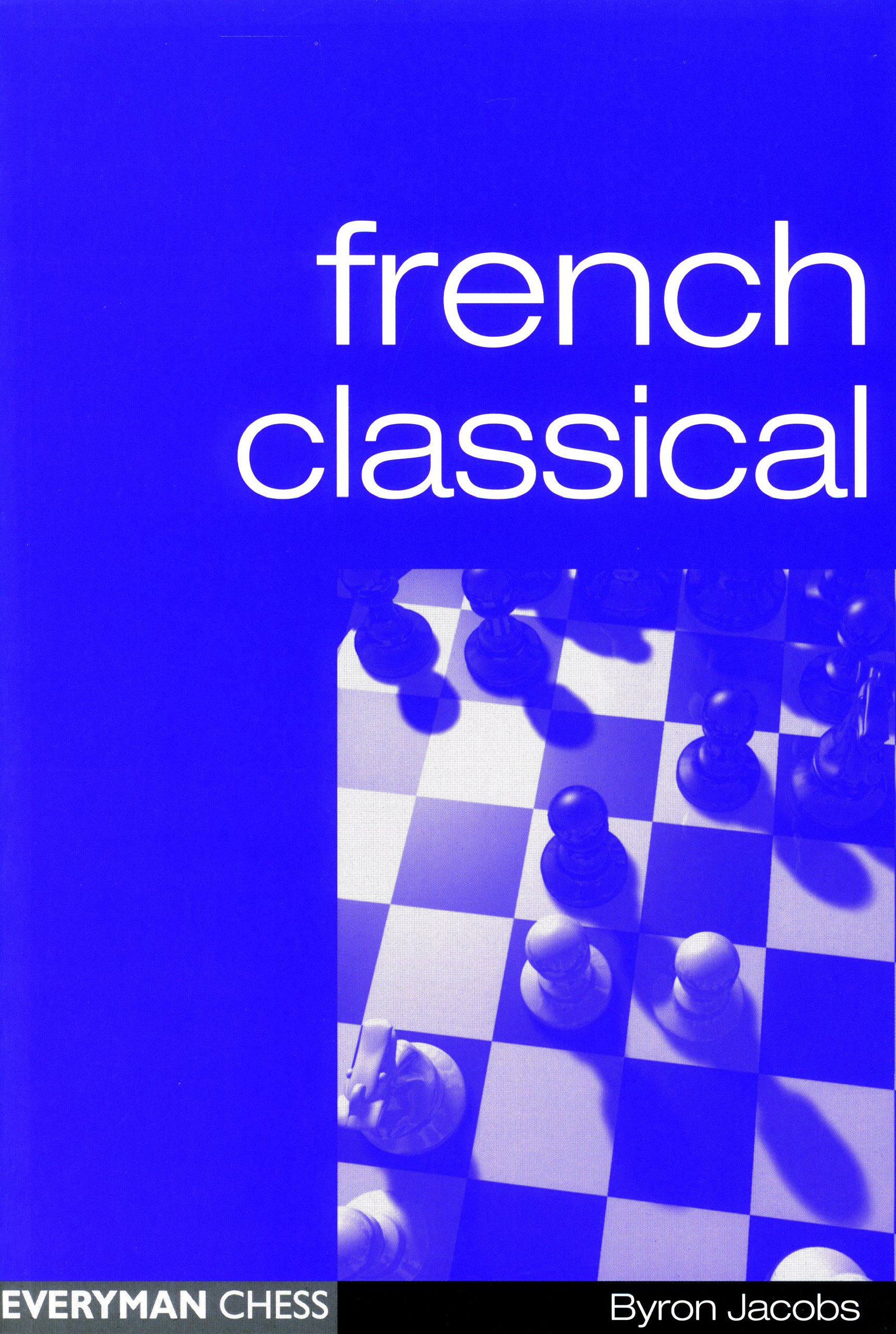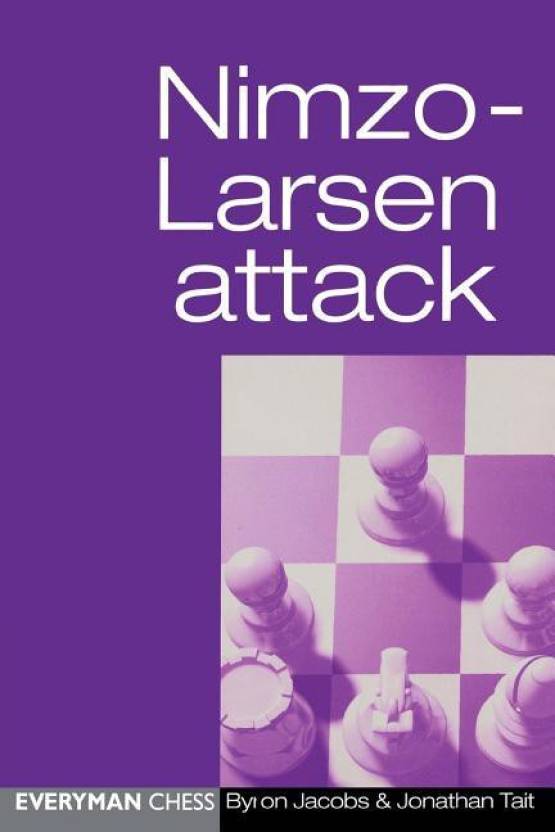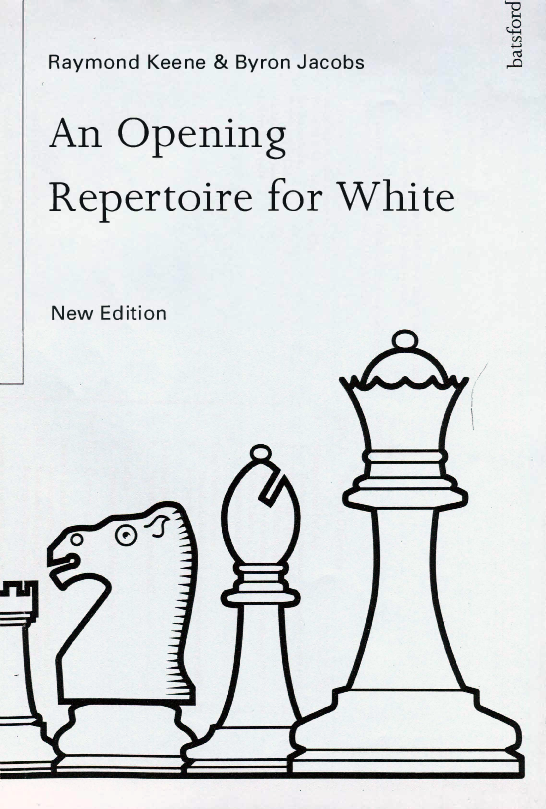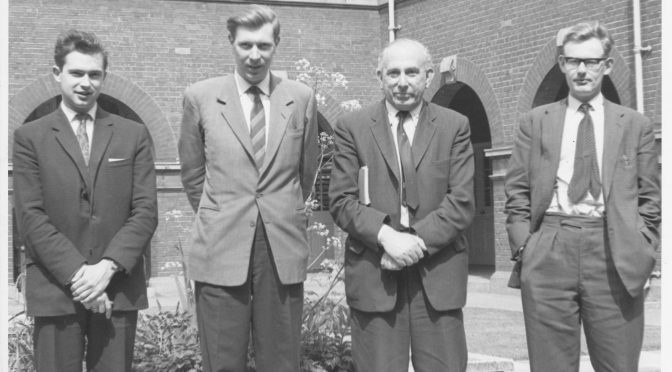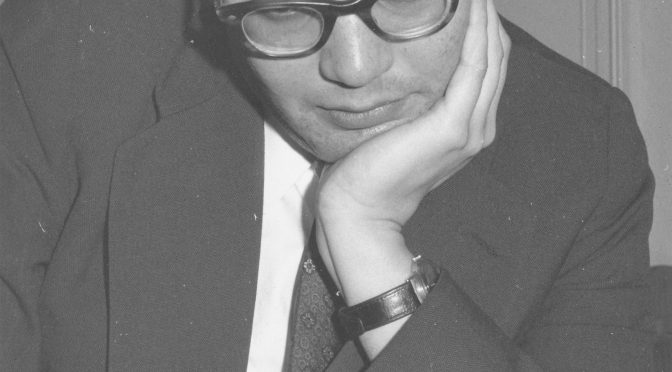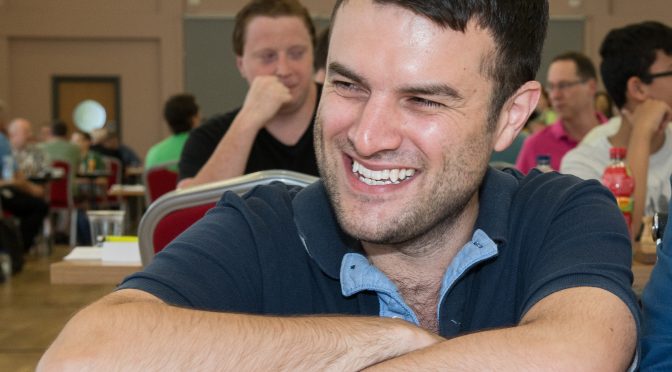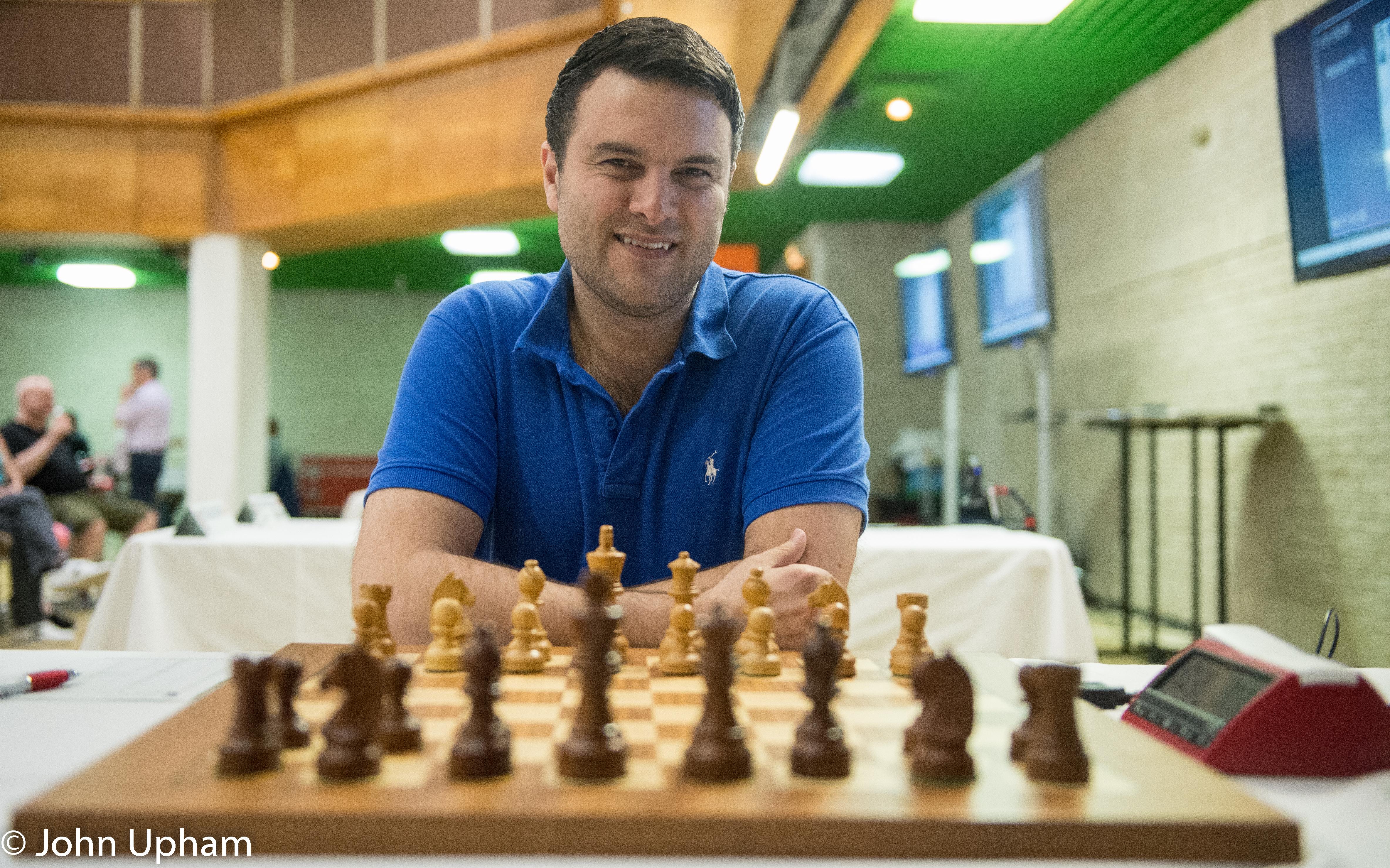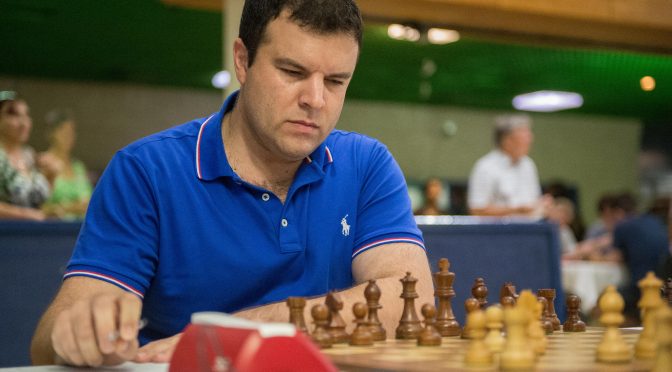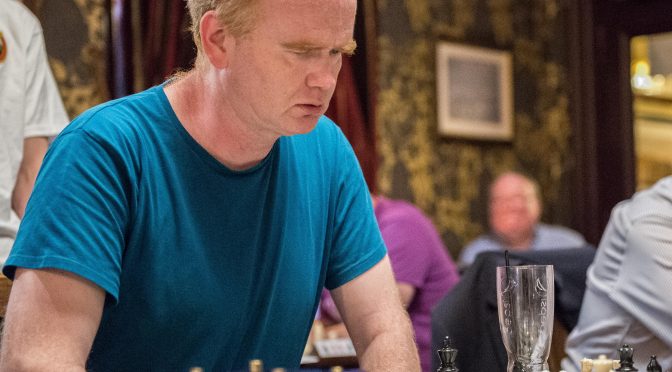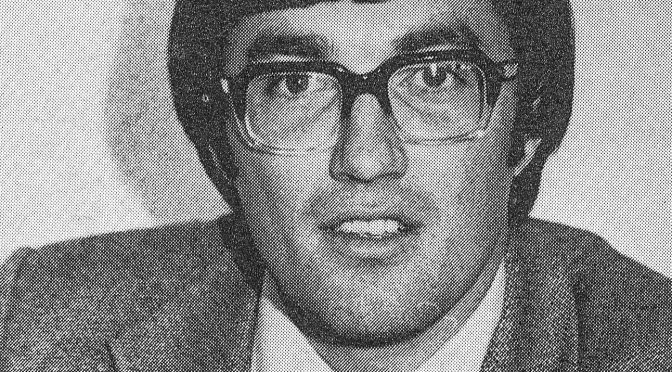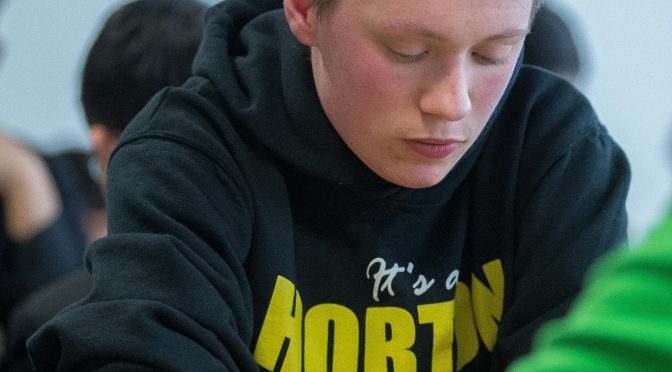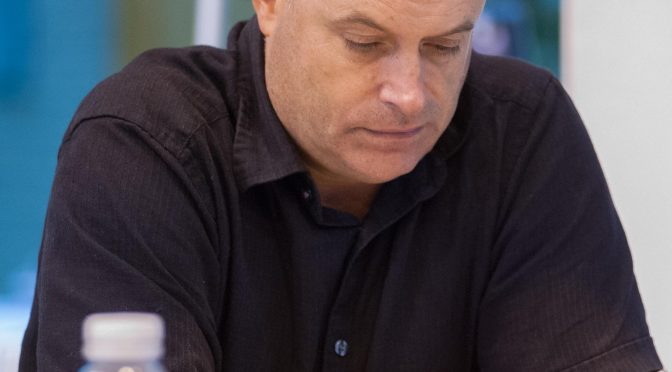Birthday of FM Owen Mark Hindle (14-iii-1940)
Tag Archives: Player
Remembering Raaphy Persitz (26-vii-1934 04-ii-2009)
We remember Raaphy(i) Persitz who passed away on Wednesday, February 4th, 2009.
From British Chess Magazine, Volume CXXIX (129, 2009), Number 3 (March), pp. 130-134 by John Saunders we have this detailed obituary:
Raaphy Persitz
A tribute to a great friend of British chess, by John Saunders
Raphael Joseph Arie (Raaphy) Persitz (26 vii 1934, Tel Aviv – 4 ii 2009, Tel Aviv)
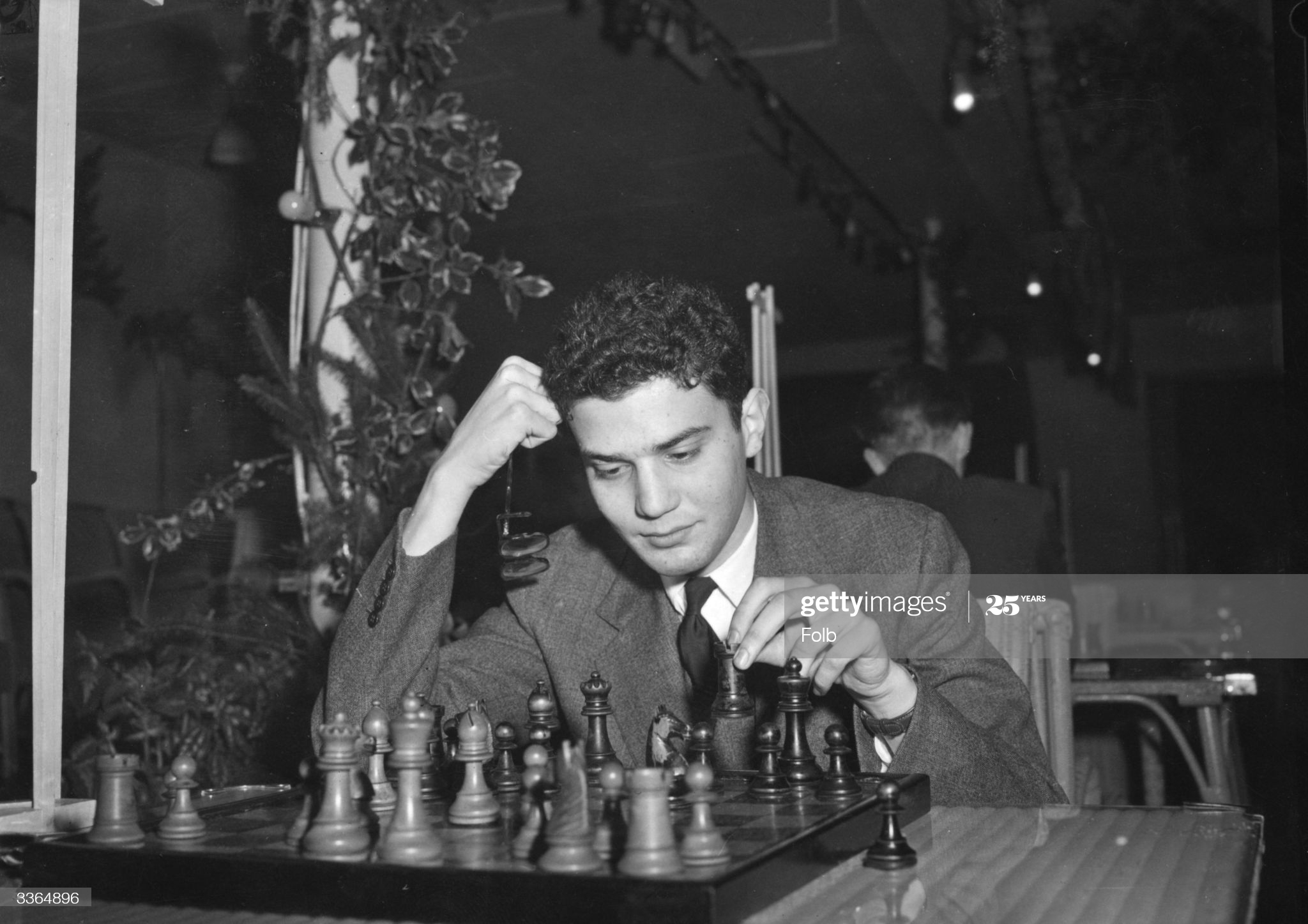
Raaphy Persitz, one of the strongest players resident in Britain in the 1950s and 1960s and also one of BCM‘s most popular contributors, has died aged 74. Raaphy was born in Tel Aviv, the grandson of Shoshana Persitz (1893-1969), a publisher who became an early member of the Knesset, the Israeli parliament. Raaphy became Israel’s first junior champion in 1951 and shortly afterwards came to study PPE (Philosophy, Politics and Economics) at Oxford University where he was a member of their very strong chess team and a close friend of Leonard Barden and others.
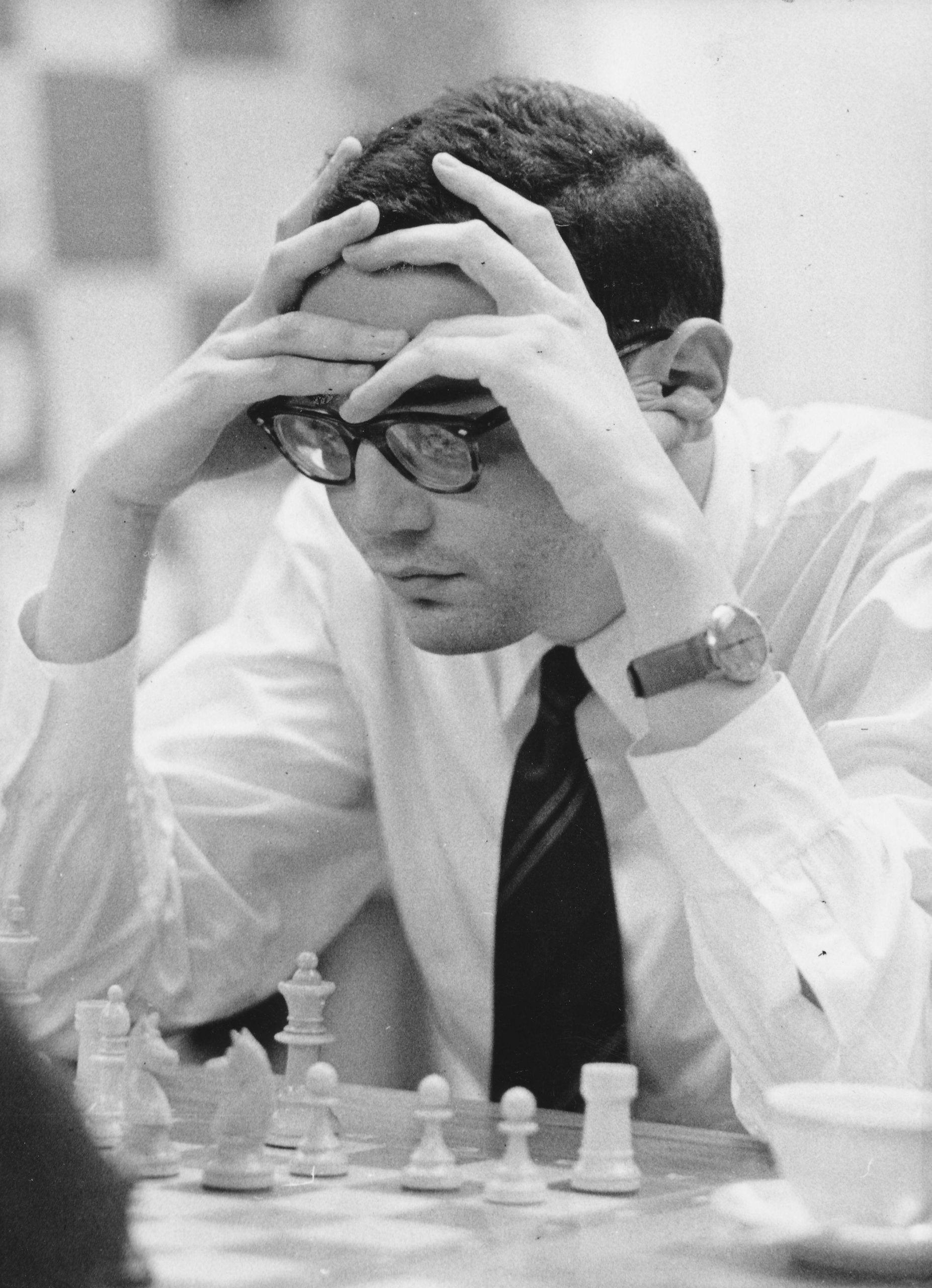
One of his most publicised feats was to win his Varsity match game and also a county match against Hugh Alexander on the same day (see the May 1954 or March 2004 issues of the magazine for further details). Raaphy played three times in the Varsity match and also represented England in three Students Olympiads in the mid-1950s. He represented Israel in the 1960 Leipzig Olympiad on board four, and also played twice in the Hastings Premier, in 1955-56 and 1968-69, the latter being his swansong in competitive chess as he turned his attention to a career in banking which took him first to Switzerland and eventually to his home town of Tel Aviv. As a player his best result was probably finishing third behind Reshevsky and Szabo at the first major international tournament held in Israel, Haifa/Tel Aviv 1958.
Despite giving up competitive play, Raaphy never lost his love of the game and remained an avid reader of magazines and follower of the game until the end of his life. And, of course, he remained a perceptive and humorous writer on the game though his output was much lower than in the 1950s. The news of his death came as a particular shock to me as, only a couple of weeks previously, he had sent me a fax saying how moved he had been by the tribute I had writ- ten to Bob Wade in the January 2009 issue of BCM. That was typical of his kindness to wards me which dated back to when I took my first tottering steps as BCM editor in 1999. We never actually met in person but spoke occasionally on the telephone and exchanged faxes (Raaphy didn’t seem to communicate by email).
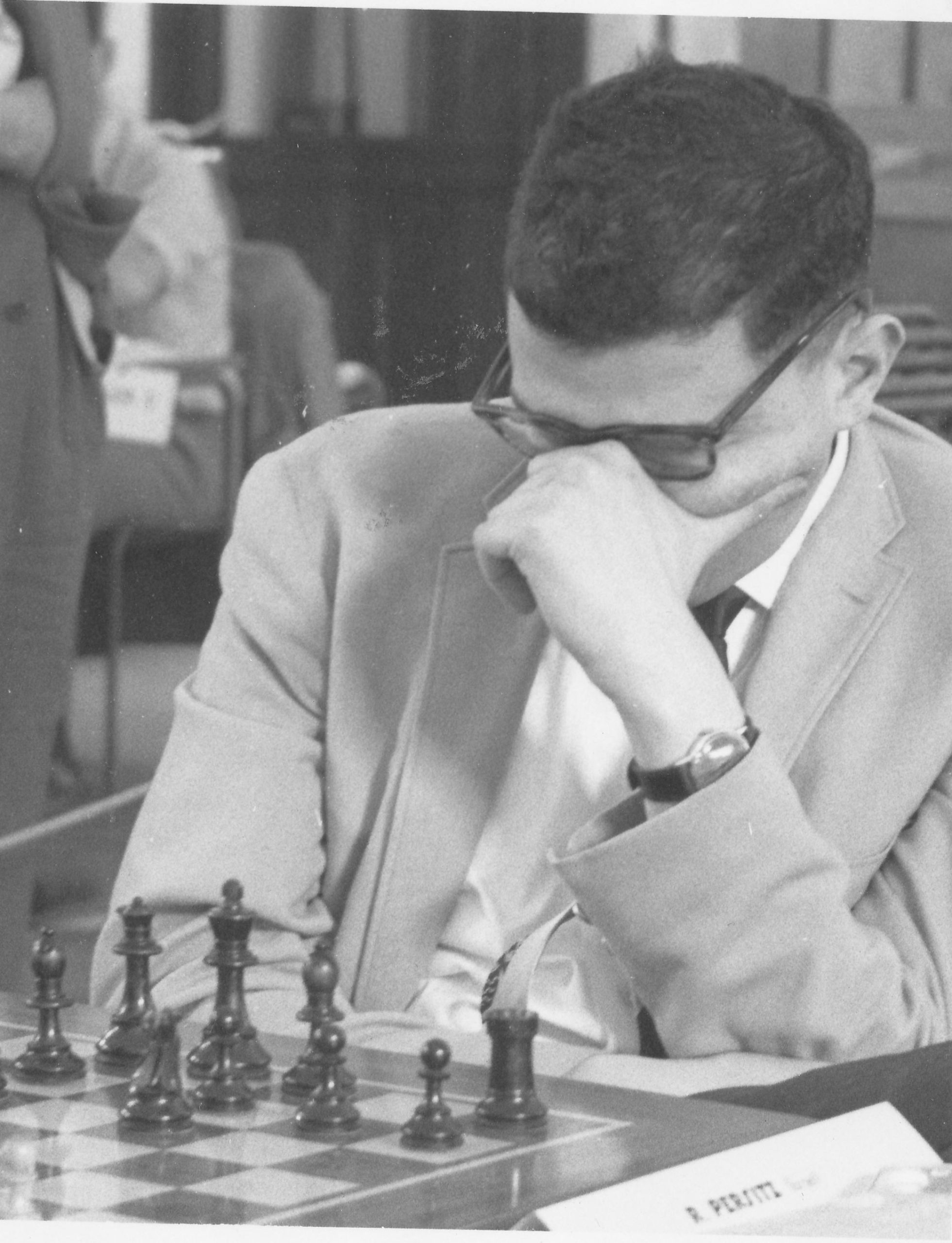
As a long-time reader of the magazine I had enjoyed his Student’s Corner column contributions. The column had been initiated by Abe Yanofsky in the early 1950s and Raaphy had inherited it in 1958. I was particularly delighted when, in 2004, after I had written about his 1954 feat in winning his Varsity match game and a county match against English number one CHO’D(Hugh) Alexander on the same day, Raaphy consented to write another column (which appeared in the May 2004 issue of BCM). I never succeeded in getting him to write another one but it was such a pleasure to have him write for the magazine during my spell as editor.
(Regarding the above game there is a note from Sally Simpson on chessgames.com as follows:
Raaphi Persitz agreed to play for Oxford v Cambridge in London and also on the same day for Oxon v Gloucester in a county match in Swindon.
This is the second game, he won both games.
Be aware that Bruce Hayden in ‘Cabbage Heads and Kings’, which is where I got this game from, mentions this but also added that these games took place on the same day as the 1954 Grand National (won by Royal Tan). This is wrong as the Grand National that year was run on the 10 April.
I think that maybe Bruce saw the score of the games with the two games a day story in a Sunday newspaper covering Saturdays Grand National and perhaps got the dates mixed up.
)
The fax he sent me on 7 January 2009 seems particularly poignant now but it is a good example of Raaphy’s kindness and self-deprecating humour. Here is the full text:
“Dear John, I was moved by your wide-ranging obituary of Bob Wade in the BCM[January 2009, p34l. I dare say you did justice to his contributions and devotion to chess, spanning well over half a century. I have several pleasant recollections of conversations and over-the-board encounters with Bob. One such tussle, a hard-fought draw, was reproduced by Bob, with comments (in the Student’s Corner) in a book containing his eventful games.
Another, somewhat less felicitous, recollection harks back to a game we contested at Ilford, where, in extreme time trouble, I blithely played Rxh7+, expecting …Qxh7, but overlooking the simple …Kxh7, leaving me a whole rook down with no compensation, whereupon I duly resigned. What impressed me at the time was the lightning speed with which Bob reacted to my ill-fated blunder – as if it were nothing but inevitable…
With warmest wishes for a healthy,
happy, fruitful 2009. Raaphy.”
I had hoped to publish the above as a Letter to the Editor but, sadly, it must now appear as part of Raaphy’s obituary. The draw with Bob Wade referred to in the fax was played in Dublin in 1962 and featured in Student’s Corner in BCM in the December 1966 issue on page 356. It seems appropriate to reproduce the game here in tribute to these two recently departed and much-loved chessplayers.
Notes by Persitz
Unlike the majority of games that have, over the years, appeared in the Student’s Corner, the following dour struggle between Bob Wade (White) and myself (Black), from Dublin, 1962, is in no way outstanding: it does not contain any brilliant combinations; it is not a positional masterpiece; it is certainly not devoid of mistakes. Nor is it amusing, or original, or of theoretical interest or particularly instructive. Yet (with the aid of the interspersed comments) it ought to give the student a pretty shrewd and realistic idea of the stuff competitive chess is made of: the endless number of laborious variations that have to be examined; the annoying little threats that must be attended to; the treacherous pitfalls to be sidestepped; the technical hurdles to be surmounted; the frustrating little details, indifference to which may be fatal; in brief, the drudgery that has become part and parcel of contemporary tournament practice, without which success is unimaginable.
Raaphy Persitz Tributes
Leonard Barden: Raaphy was probably my best friend at Oxford – certainly so among chessplayers. We played hundreds of blitz games in the junior common room at Balliol and later for some months in 1957 we shared a London flat, analysing Russian championship games over breakfast. He was a wonderful man to know, bright, witty, gentle, sympathetic and knowledgeable.

A tribute by Amatzia Avni: Ordinary people have a mixture of good qualities and bad ones. After 20 years of friendship with the late Raaphy Persitz I can attest that he was a distinct type: one sided, positive-only; pure gold.
I first met him in 1989. I had just written my first chess book (in Hebrew) and was searching for someone to write me an introduction. The word was that Persitz was back in town, after long years abroad. Having seen glimpses of his amazing linguistic skills, I contacted him and he agreed immediately. He didn’t know me, hadn’t read a single sentence of the book, yet he didn’t hesitate: “yes, sure, I’ll be glad to”.
That was typical Persitz: always ready to help, unconditionally. The introduction, needless to say, was a sheer delight, a class or two above the rest of the book. In later years he gave me a hand several times polishing my texts and making them more reader-friendly to English-speaking readers. Somehow he seemed to know what I wished to express better than I did. His suggestions enabled me to convey my meaning in a clear and precise manner.
Raaphy was modest and reserved. Once I called him and realized he was upset. “My mother had passed away some weeks ago,” he said. I was puzzled why he didn’t tell me the sad news at the time. “I didn’t want to bother you” was his reply.
A couple of years ago I stumbled upon Bruce Hayden’s old book Cabbage Heads and Chess Kings. One of the book’s chapters was headed “Raaphy Persitz star or comet?”. I learned that, in the 1950s, Persitz gained bright victories in England, against Penrose, Alexander, Milner-Barry and others. Searching a Chessbase database I found out that he also done battle with some out- standing international players. Yet, in all our meetings and hundreds of hours of conversation, he never said a thing about that!
Persitz was a master of understatement. I learned that if I wrote “very fine” or “extremely strong”, the ‘very’ and ‘extremely’ would fly out of the window. If I made a firm stand on a certain issue, he would add “probably”, “apparently’ or “it may be argued that”, because it was indeed only an opinion, not a fact. Over time, following his line of thought made me improve the way I expressed myself and thought about chess.
Persitz’s distinctions in chess, in linguistics and in journalism are evident to anyone who ever read his chess books and articles. He also excelled at economics, but I am unqualified to comment on this.
God bless you, Raaphy. I feel privileged to have known you. Amatzia Avni.
Here is his Wikipedia entry
Birthday of IM Richard Pert (22-i-1981)
Birthday of GM Nick Pert (22-i-1981)
We send birthday wishes to GM Nick Pert born this day (January 22nd) in 1981.
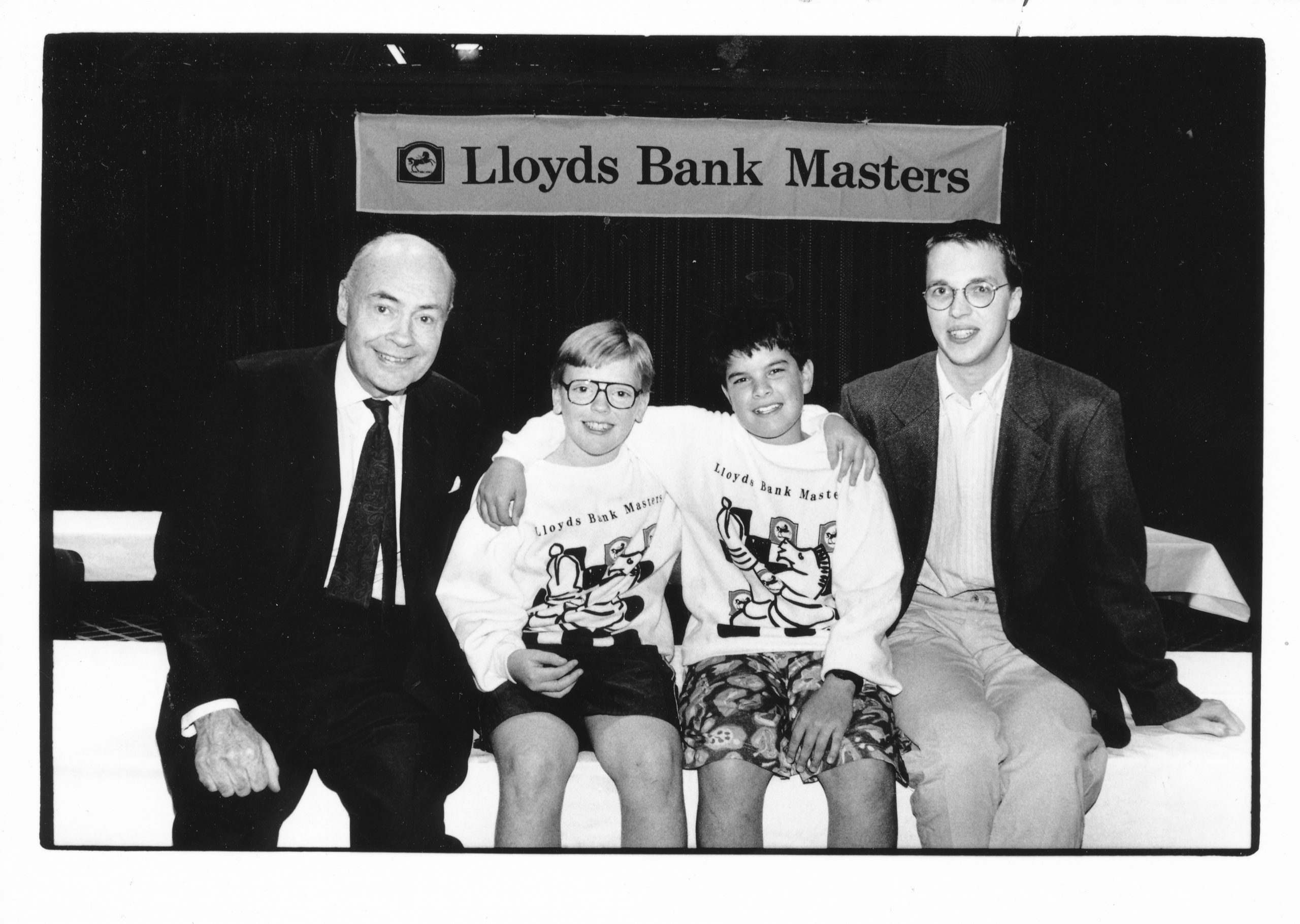
Nick won the Southern Counties (SCCU) championship for the 2016-17 season sharing with Richard Bates.
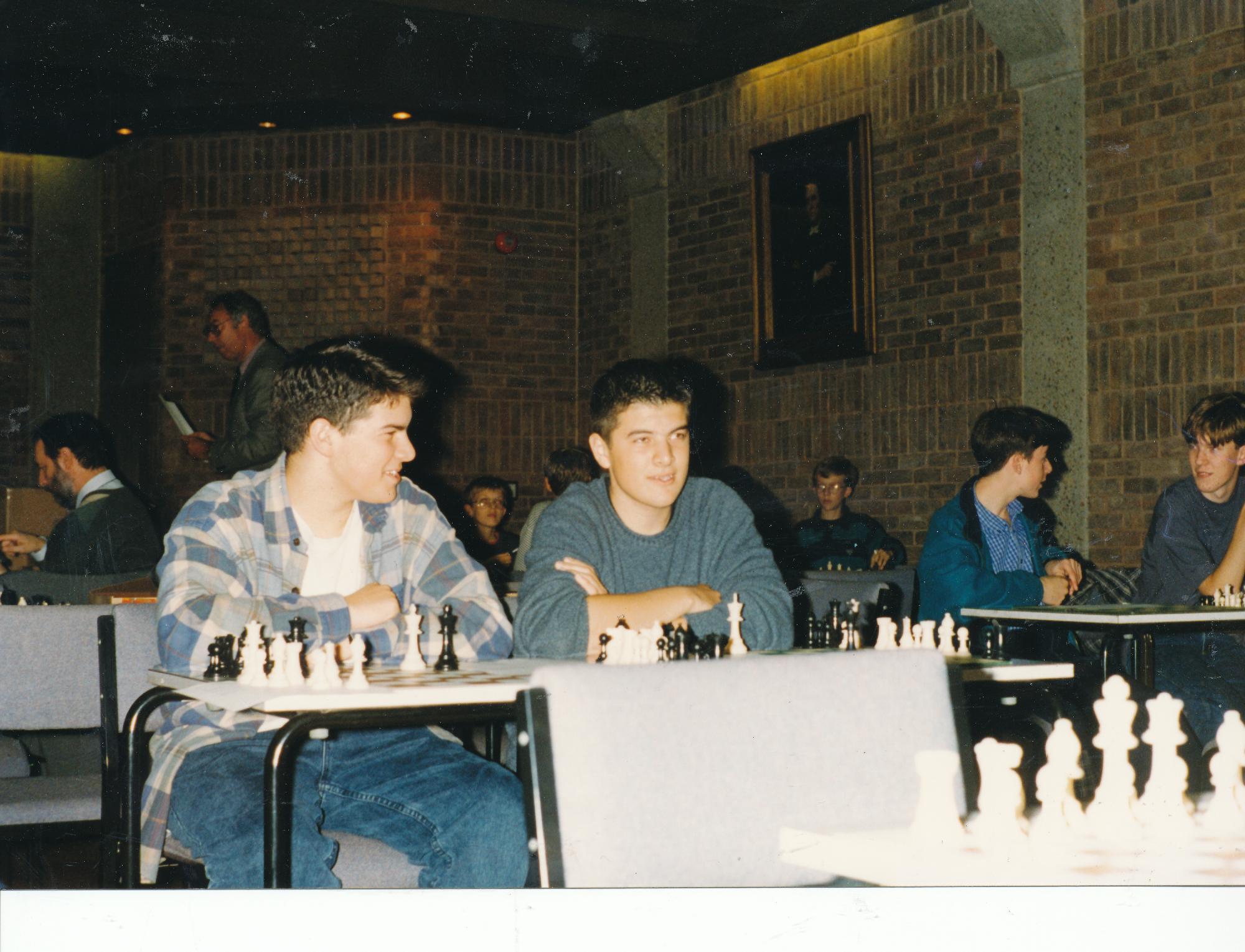
Here is Nick’s Wikipedia entry
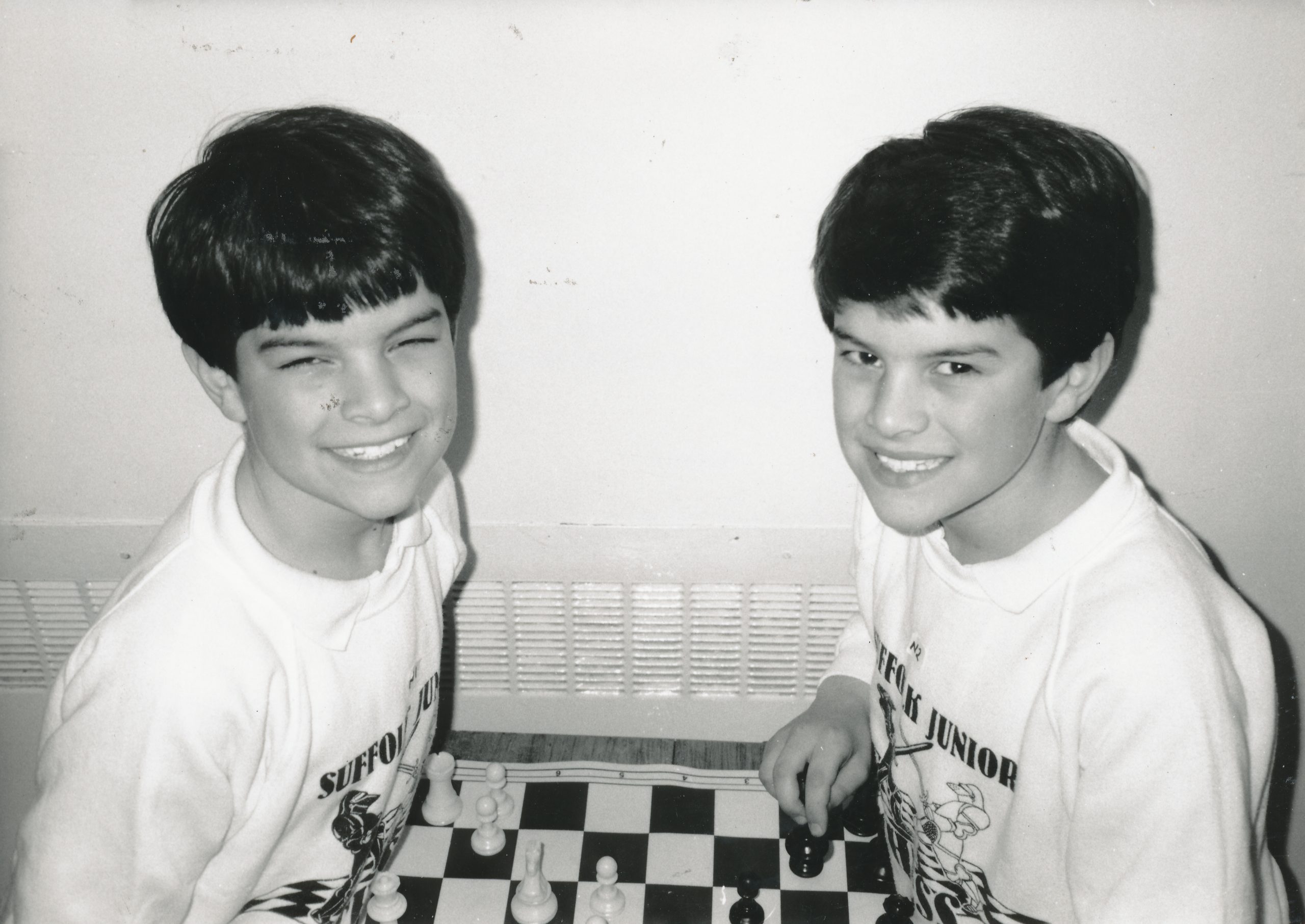
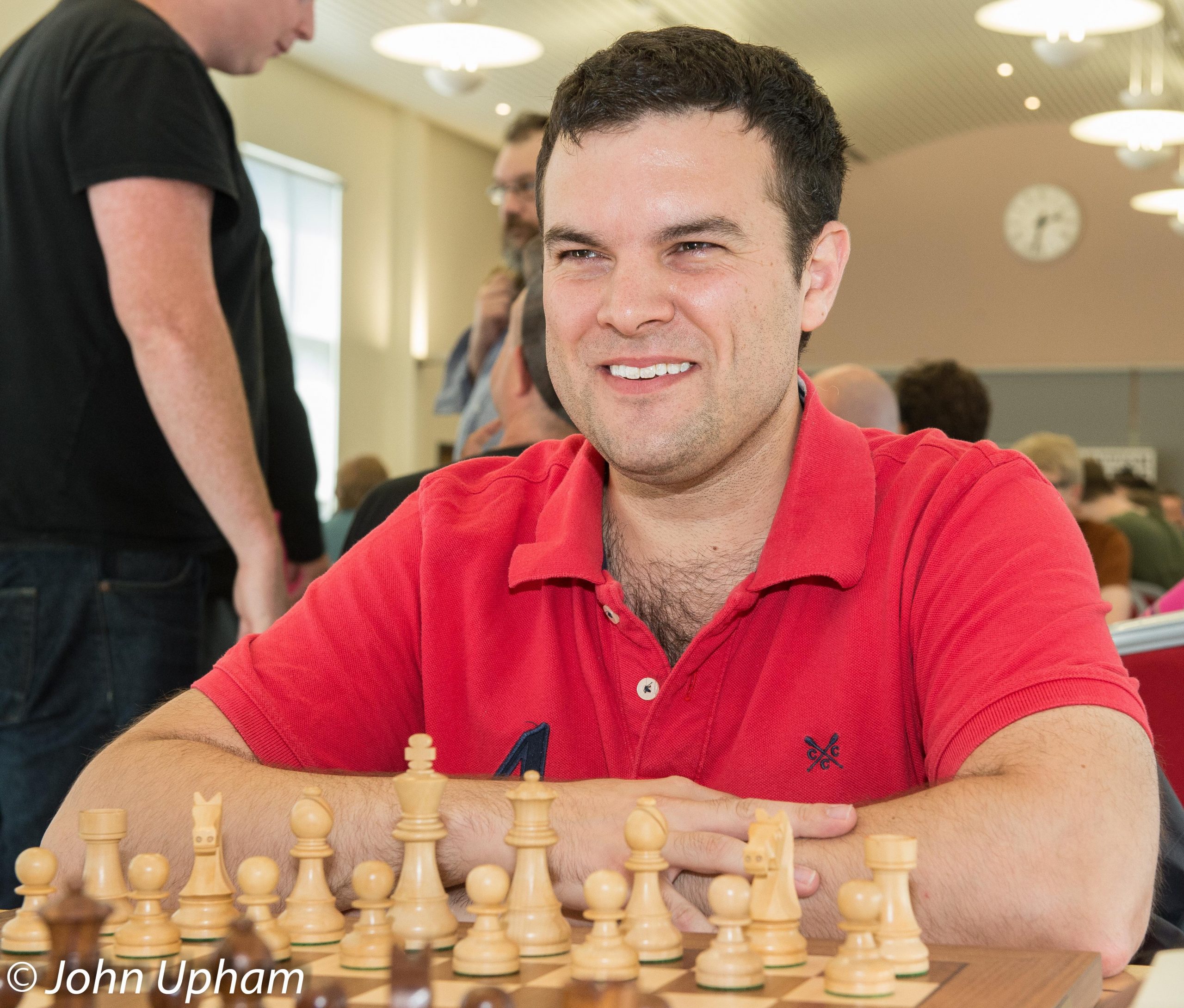
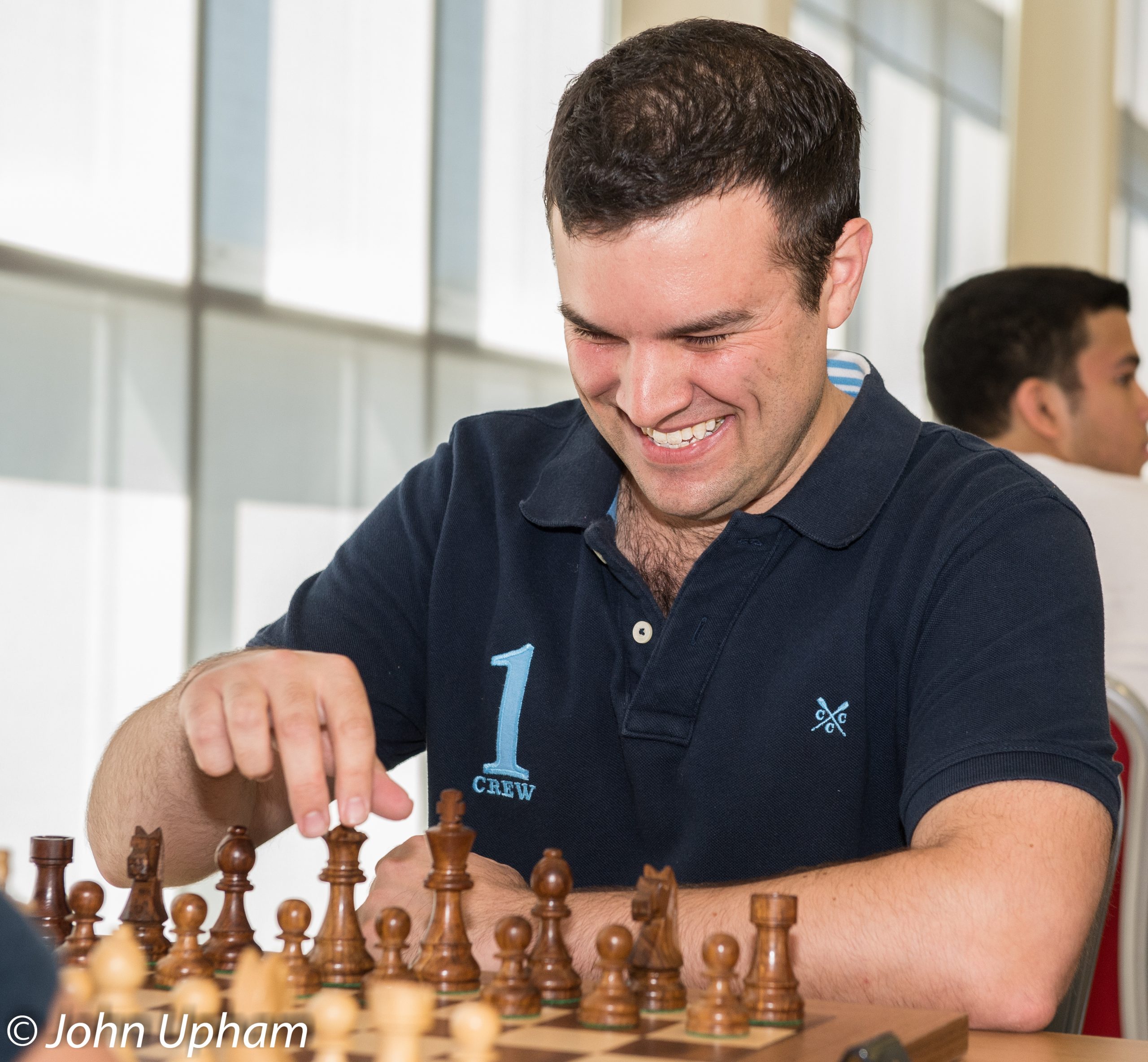
Birthday of GM Neil McDonald (21-i-1967)
We send birthday wishes to GM Neil McDonald born on this day (January 21st) in 1967.
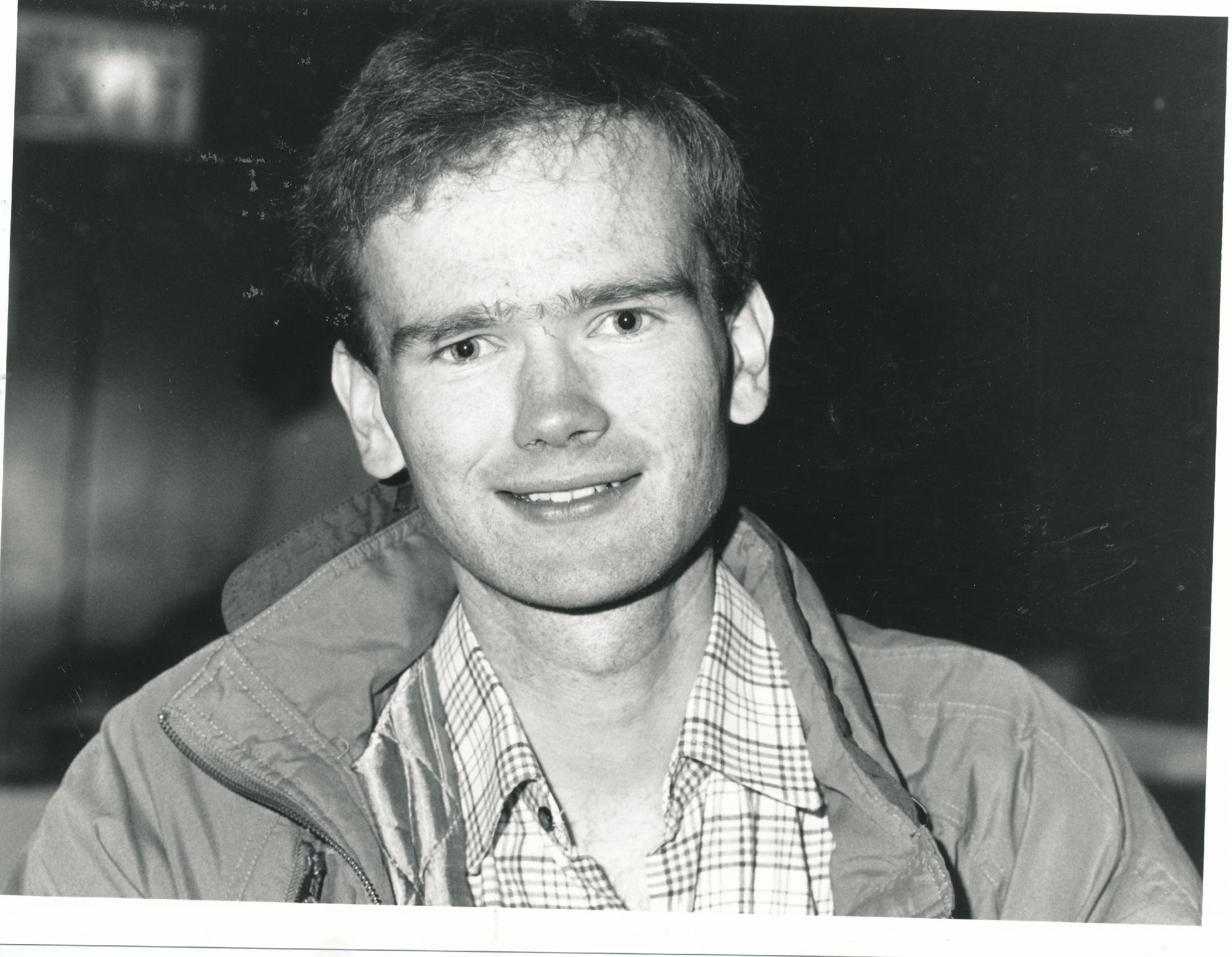
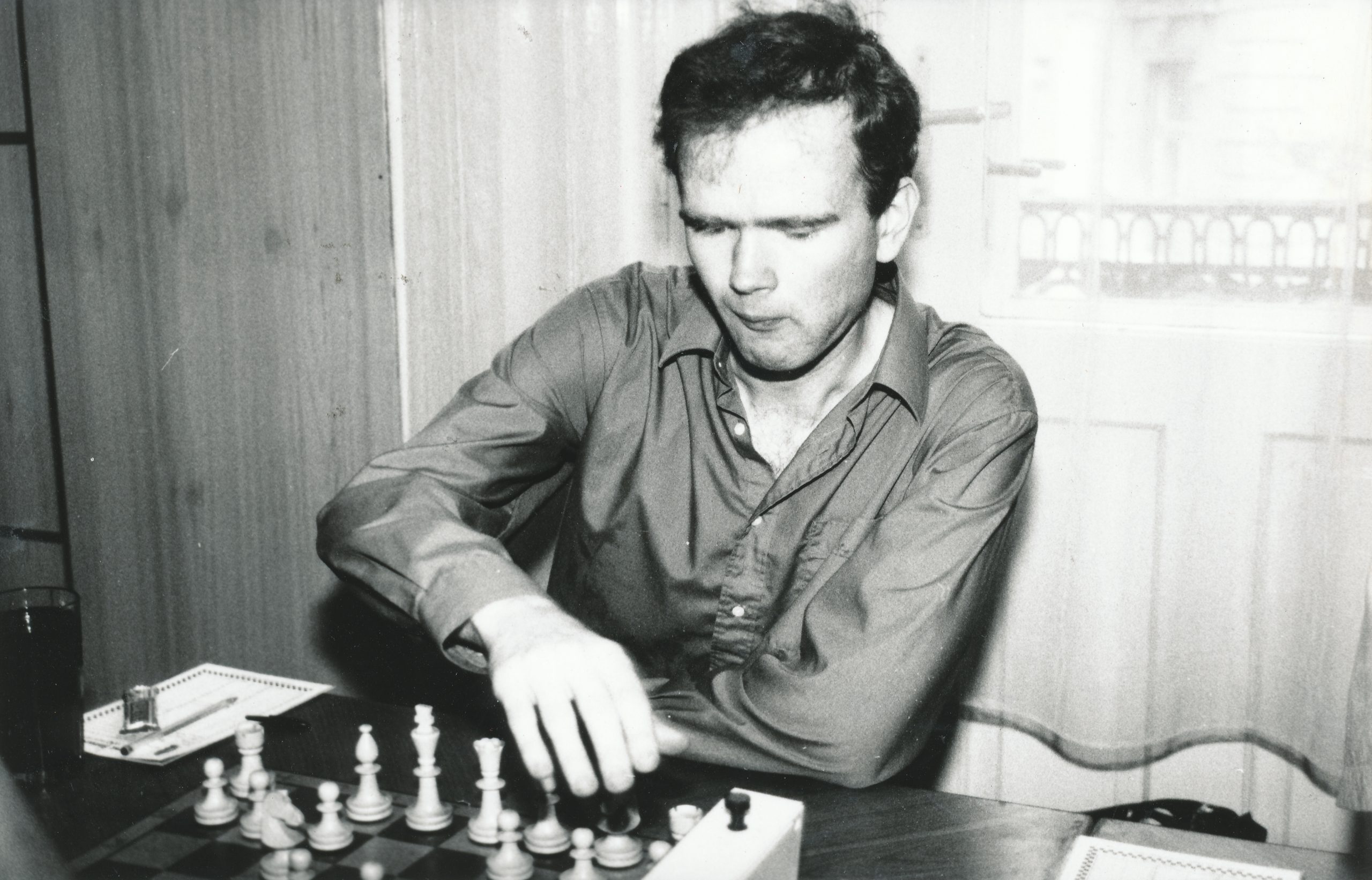
From Wikipedia :
Neil McDonald (born 21 January 1967) is an English chess grandmaster and a player on the international chess circuit. He is an English Chess Federation coach,[1] who has trained many of the country’s strongest junior players. McDonald is a regular coach of the English junior team and was Head Coach of the English Chess Federation team at the Greece World Schools Championship in 2013.[2] He regularly escorts blind and partially sighted chess players to international World Championship events and is also a chess writer.
McDonald authored the French Defence monthly updates on chesspublishing.com from October 1999 until March 2009,[3] 1 e4 … updates from November 2009 until January 2010,[4] 1 e4 … from June 2014 until February 2015[5] and returned to 1 e4 … in March 2017 until January 2018.[6]
Neil shared first place in the 1986 GLC Masters with Jonathan Levitt, was outright first at the Elekes Memorial, 1995, first at The Leinster IM Tournament in Dublin, 1997, and other tournaments since. Neil plays for Wood Green in the Four Nations Chess League (4NCL).
He became an International Master in 1986 and was awarded the Grandmaster title in 1996.
McDonald obtained his FIDE Trainer qualification in 2016.[7]
Neil is a prolific and successful author, most recently with “Coach Yourself”

but also thirty eight titles for Chess Press, BT Batsford Ltd. and Everyman Chess Books.
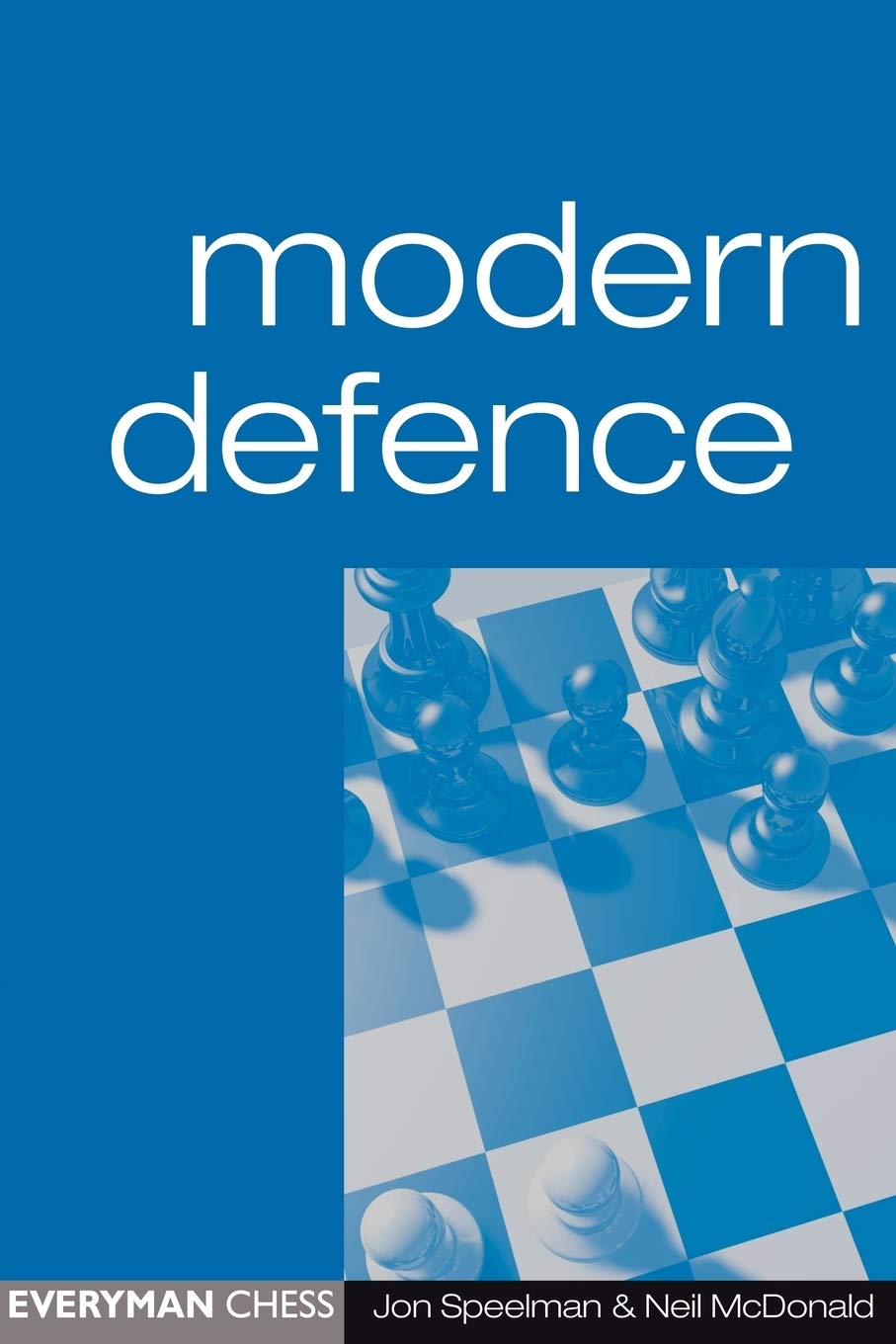
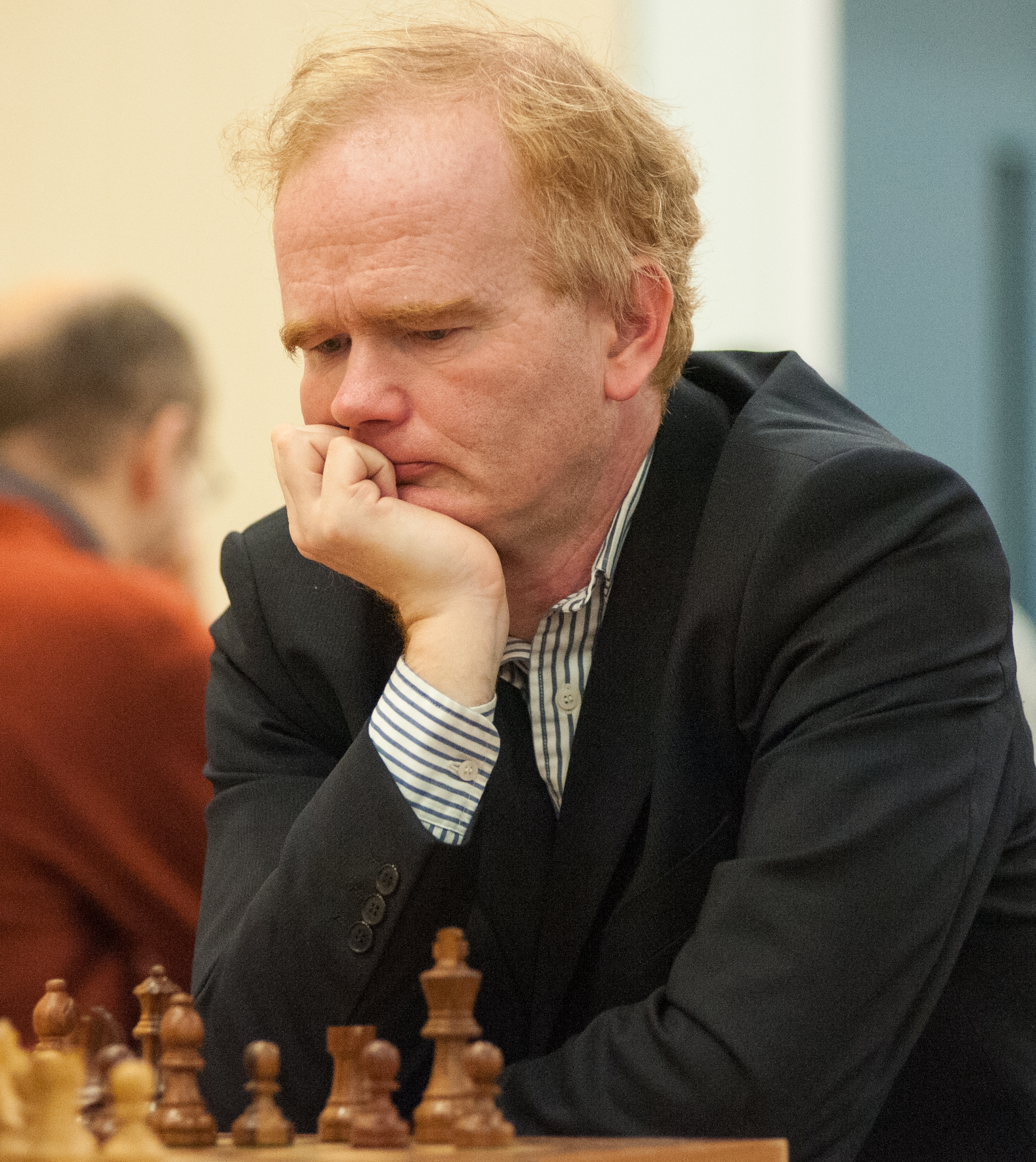
Birthday of IM Paul Littlewood (18-i-1956)
BCN wishes Happy Birthday to Paul Littlewood
Paul Edwin Littlewood was born on Wednesday, January 18th, 1956 in Skegness, East Lindsey, Lincolnshire. His parents were John and Jean Littlewood (née) Hadwick. Paul’s chess playing uncle was Norman Littlewood.
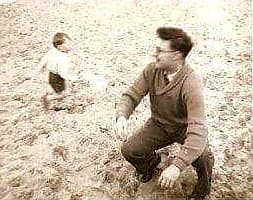
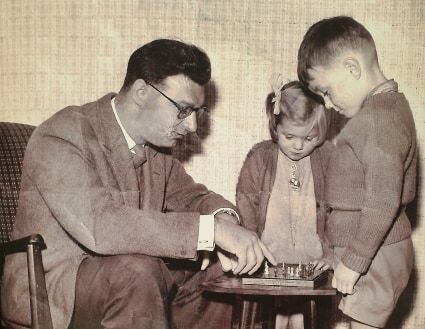
Paul attended Glenburn Comprehensive School in Skelmersdale from 1967 and then read Natural Sciences at Christ’s College, Cambridge from 1974.
Paul played badminton for Lancashire and Cambridge and, in 1971, won the English Schools Mixed Championship when he was 15 years old.
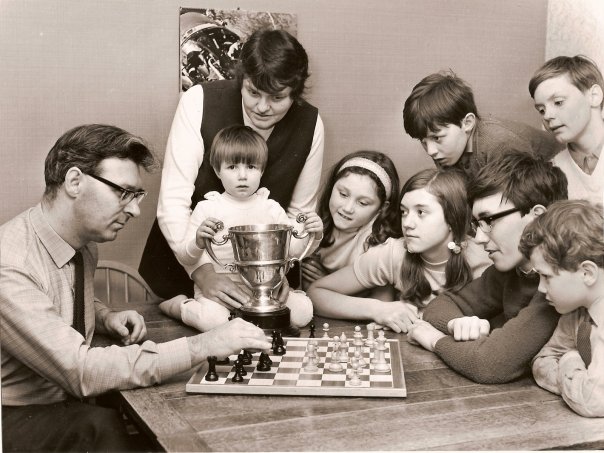
On leaving University Paul taught science at Southbrook Comprehensive, Daventry. Four years later Paul became a dealer at Phillips & Drew and followed this as an Executive Director at Goldman Sachs. Stays at Lehman Brothers and JP Morgan were followed by a change of direction and since then Paul has been director of various food supply companies retiring in 2014.
Paul is married (3rd November 2006) to (his second wife) Fiona and lives in St. Albans, Hertfordshire.
PEL won the ECF President’s Award in 2007 and from the 2008 ECF Yearbook we have the following citation :
“International Master and accomplished bridge player. From British Chess champion (1981) Paul has presided over the 4NCL as chairman during its most successful period. When he became chairman over ten years ago the league consisted of two divisions and 32 teams. The league has now expanded to four divisions and a total of 72 teams. Most of England’s juniors play 4NCL. During this time 4NCL became one of the strongest leagues in Europe, at one time boasting a Division 1 rivalling the Bundesliga in strength in the top matches.
Paul has demonstrated the sound judgement of Solomon when dealing with league disputes and has drawn on his business acumen, honed during a successful career in the City with Goldman Sachs to make 4NCL the financially stable and expanding league it is today.”
Roll of Honour
- British U18 Champion 1972
- British U21 Champion 1975
- British Champion 1981
- As a junior represented England in Glorney Cup
- International Master 1980
From British Chess (Pergamon Press, 1983) by Botterill, Levy. Rice and Richardson we have this article from Richard W. O’Brien :
“Paul Littlewood was destined to become a strong player from birth. His father John was for some time one of the strongest players in the country and represented England on many occasions. His uncle Norman was for a few years not far behind. Paul, however, has surpassed them both and has become the first in the family to reach IM status. (Ed: JEL was very much worthy of the IM title but insufficient events of the right type held him back).
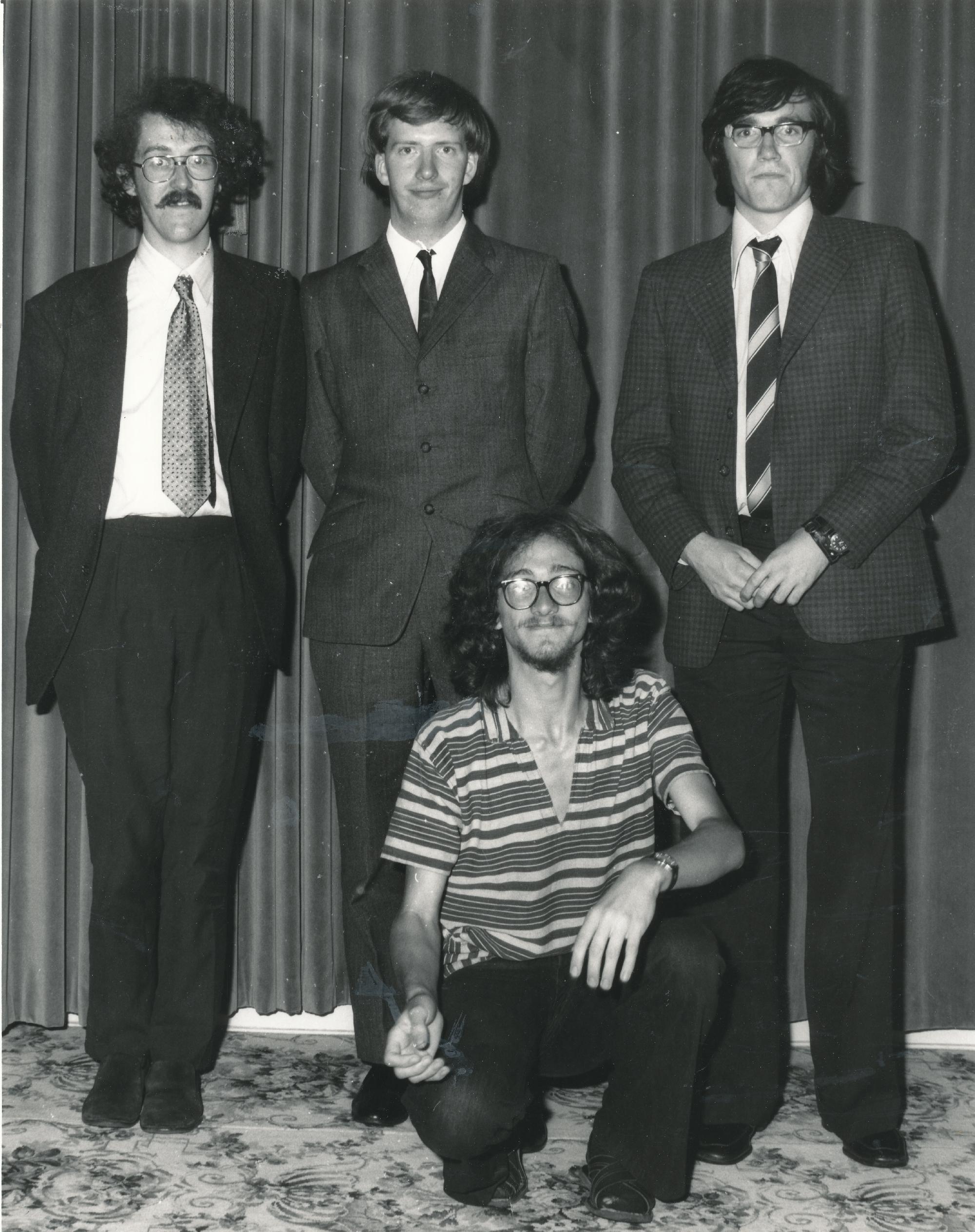
All three are essentially attacking players. There have been times in recent years when play at the Hastings Premier has become dull. However, Paul one of the English representatives at the last three tournaments, was certainly not to blame. (His game against Brito of Brazil which follows is a striking example of this).”
Coached by his father, Paul became British U18 champion in 1972 and three years later became British U21 champion.
Clearly more interested in an academic career he went up to Cambridge and then followed his father into the teaching profession. Opportunities to play in strong tournaments were thus very limited. These opportunities, however, were grasped in both hands. Three times in thirteen months between August 1978 and August 1979 he obtained an IM norm and thus the title.
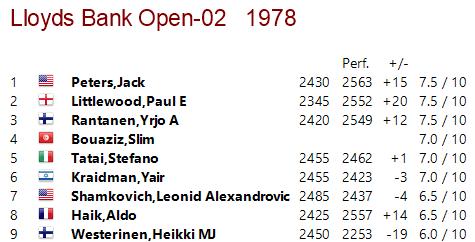
The first caused a sensation as it was totally unexpected. He shared first place at Lloyds Bank ahead of several grandmasters including Shamkovich, who was the first grandmaster he ever defeated.
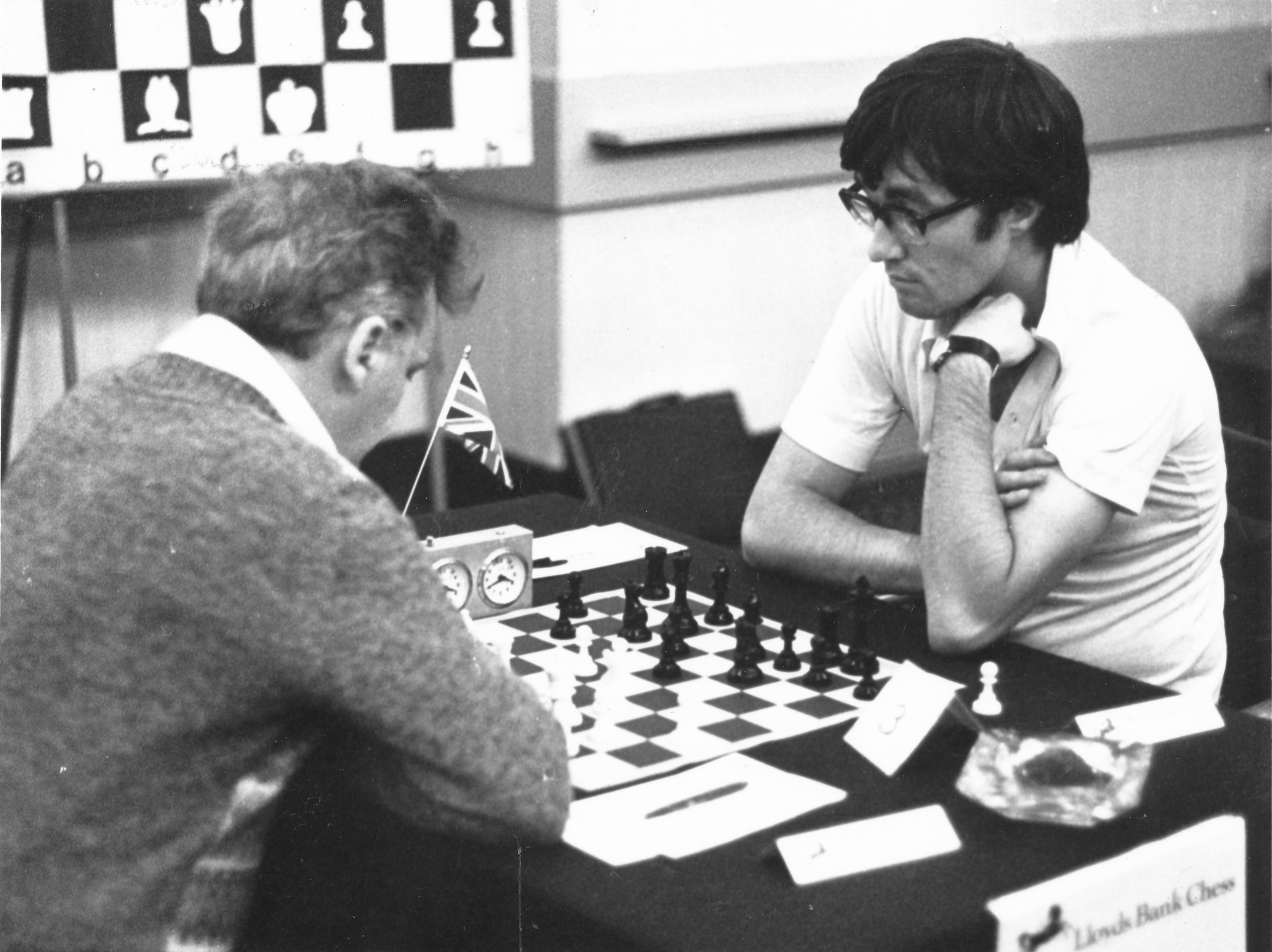
Eight months later Aaronson Masters was won and then came the final norm, also at Lloyds Bank.
Tournaments abroad were limited although he represented England students. He did play at Kringsja (2nd equal) in 1978 and Borovo where he scored 6.5.13 finishing ahead of 3 GMs.
In 1981 came his finest achievement – winning the British Championship with a massive 9/11.
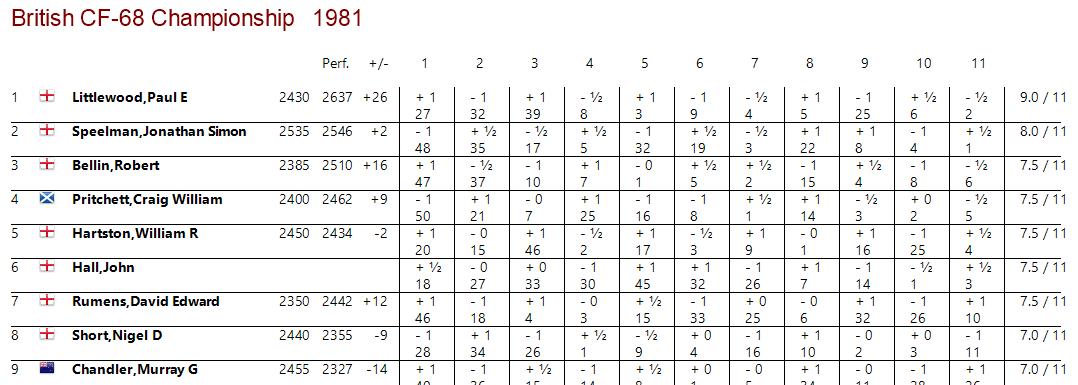
His father who was also competing in the championship was as proud as could be and deservedly so (he also coached Sheila Jackson who retained her British Ladies Championship that year). His excellent all round play took him to the title and only once during the tournament did he stand worse. His endgame play was so good that CHESS even published an article solely on these endings.
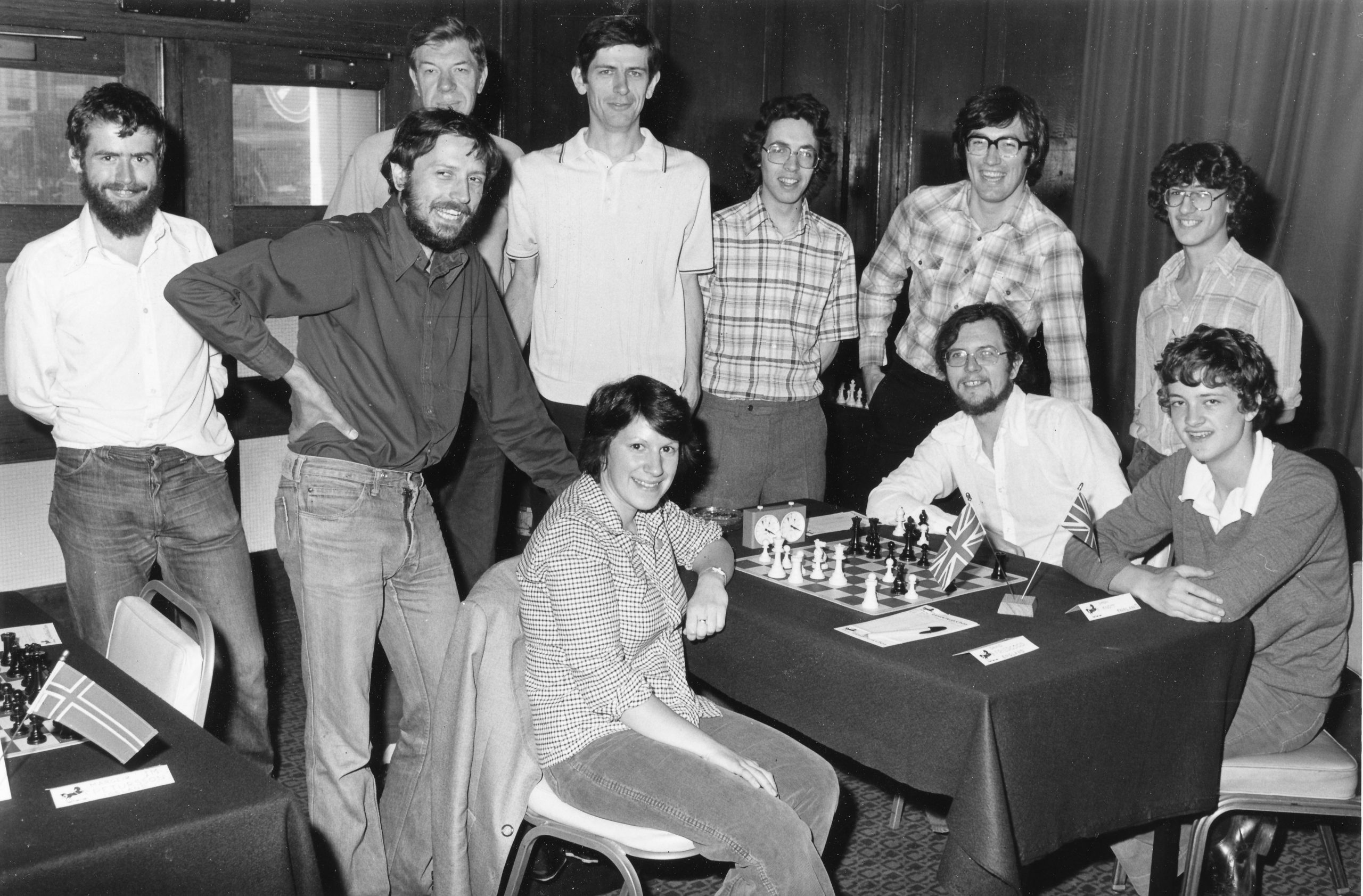
Duties at school in Daventry meant he was, in February 1982, unable to take part in the zonal at Marbella. This followed an excellent Hastings when as British Champion he made a plus score – a rare event indeed.
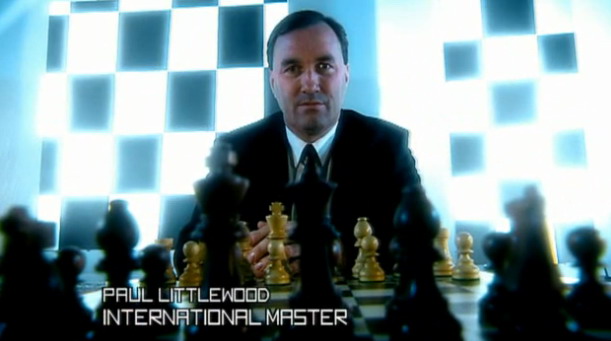
In the summer he gave up teaching and joined Phillips & Drew (stockbrokers). He now (ed : this was in 1983) lives with his (first) wife Sue and family in the wilds of Essex (Billericay).
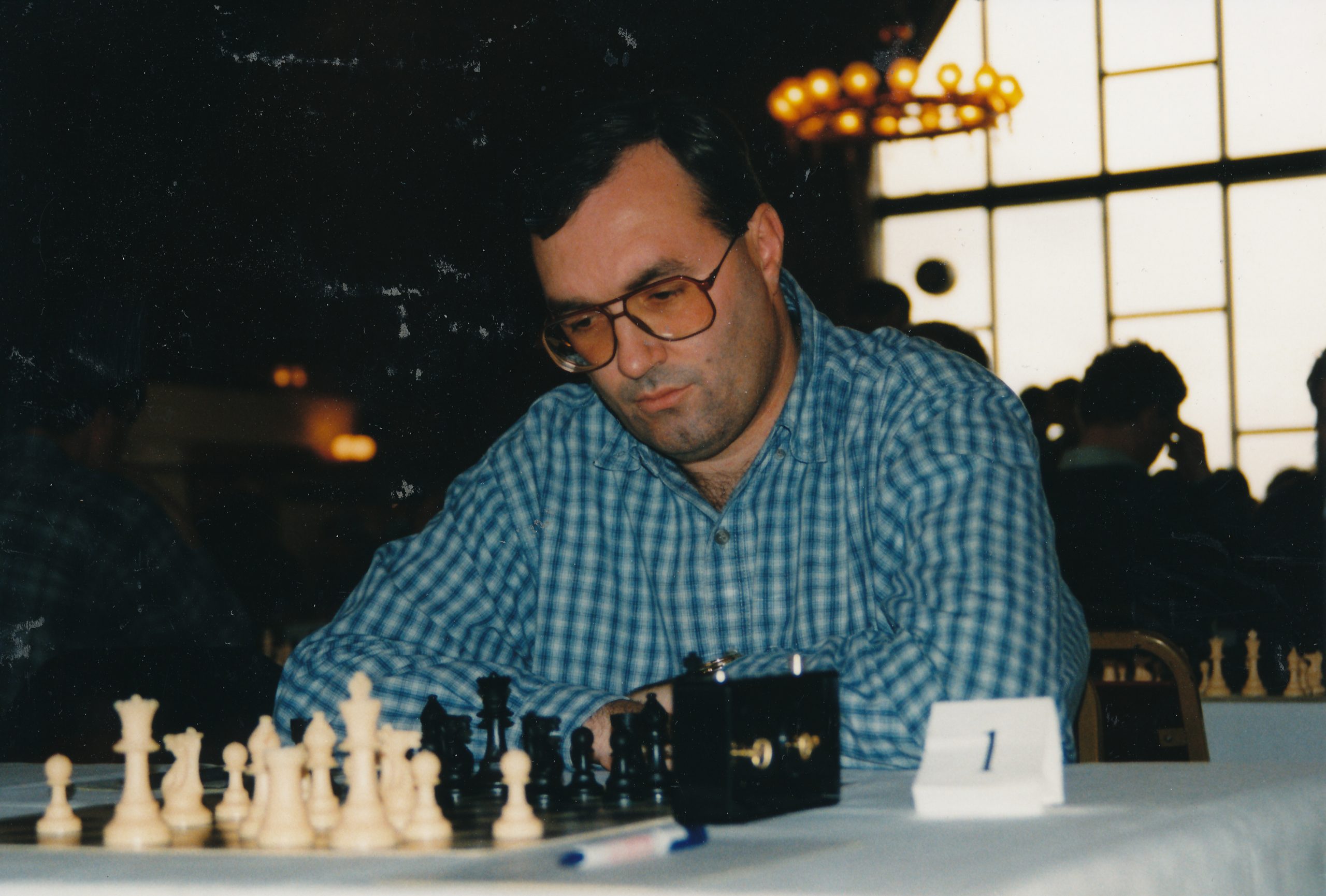
Paul gives a simultaneous display in Letchworth.
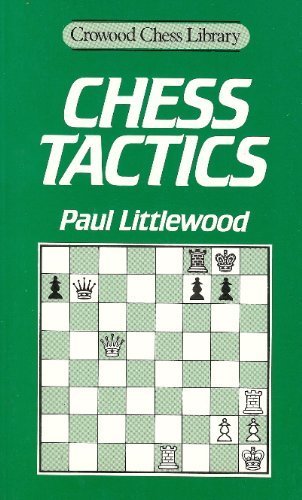
Happy Birthday IM Andrew Horton (15-i-1998)
BCN wishes Happy Birthday to IM Andrew P Horton (15-i-1998)
Andrew became a FIDE Master in 2015 and an International Master in 2018 following the 89th FIDE Congress 2018, 26 Sep – 6 Oct, Batumi, Georgia.
Andrew represents the 3Cs club in the Manchester League and in the Four Nations Chess League (4NCL) (as well as Wood Green) and, in addition, Wotton Hall, Durham City (during his University years) and Northumberland CA for county matches.
Andrew made regular appearences at the Delancey UK Chess Challenge and was placed 1st in the 2014 Terafinal, Challengers section.
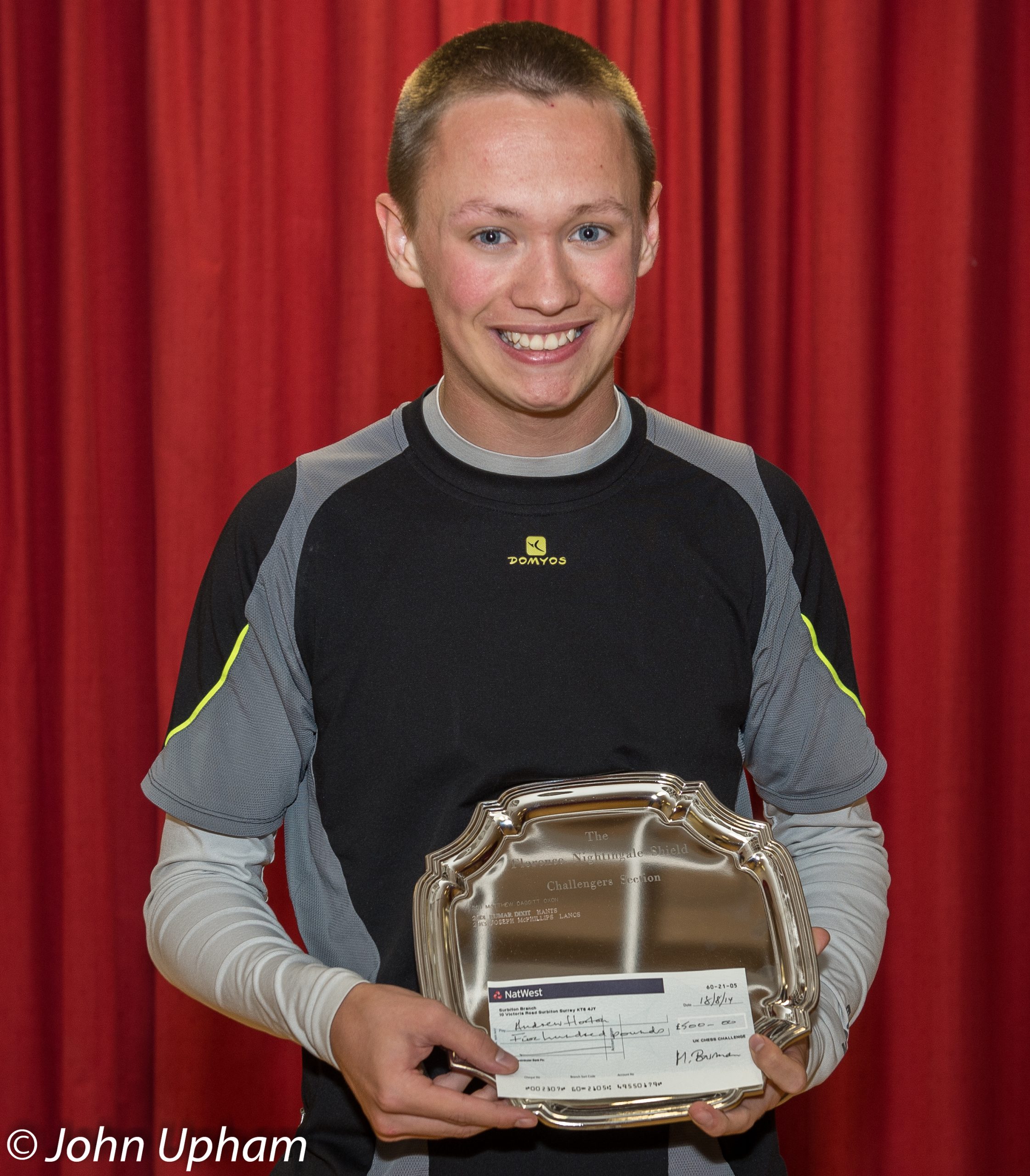
In 2021 Andrew was invited and played in the London Chess Classic at the Cavendish Conference Centre.
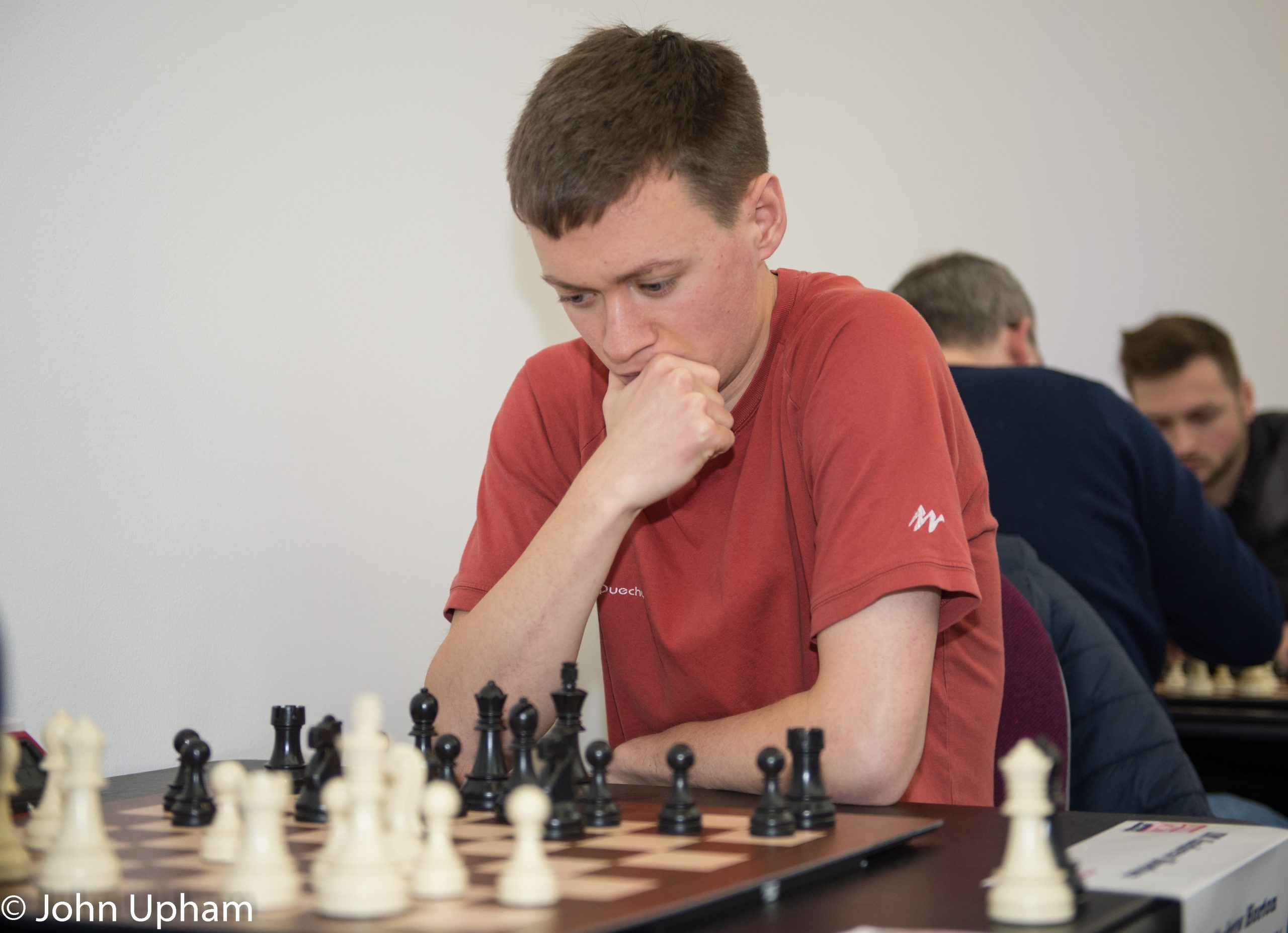
Andrew’s ECF standard play rating at January 2023 is 2452K.
Birthday of GM Keith Arkell (08-i-1961)
We send birthday wishes to GM Keith Arkell, born this day (January 8th) in 1961.
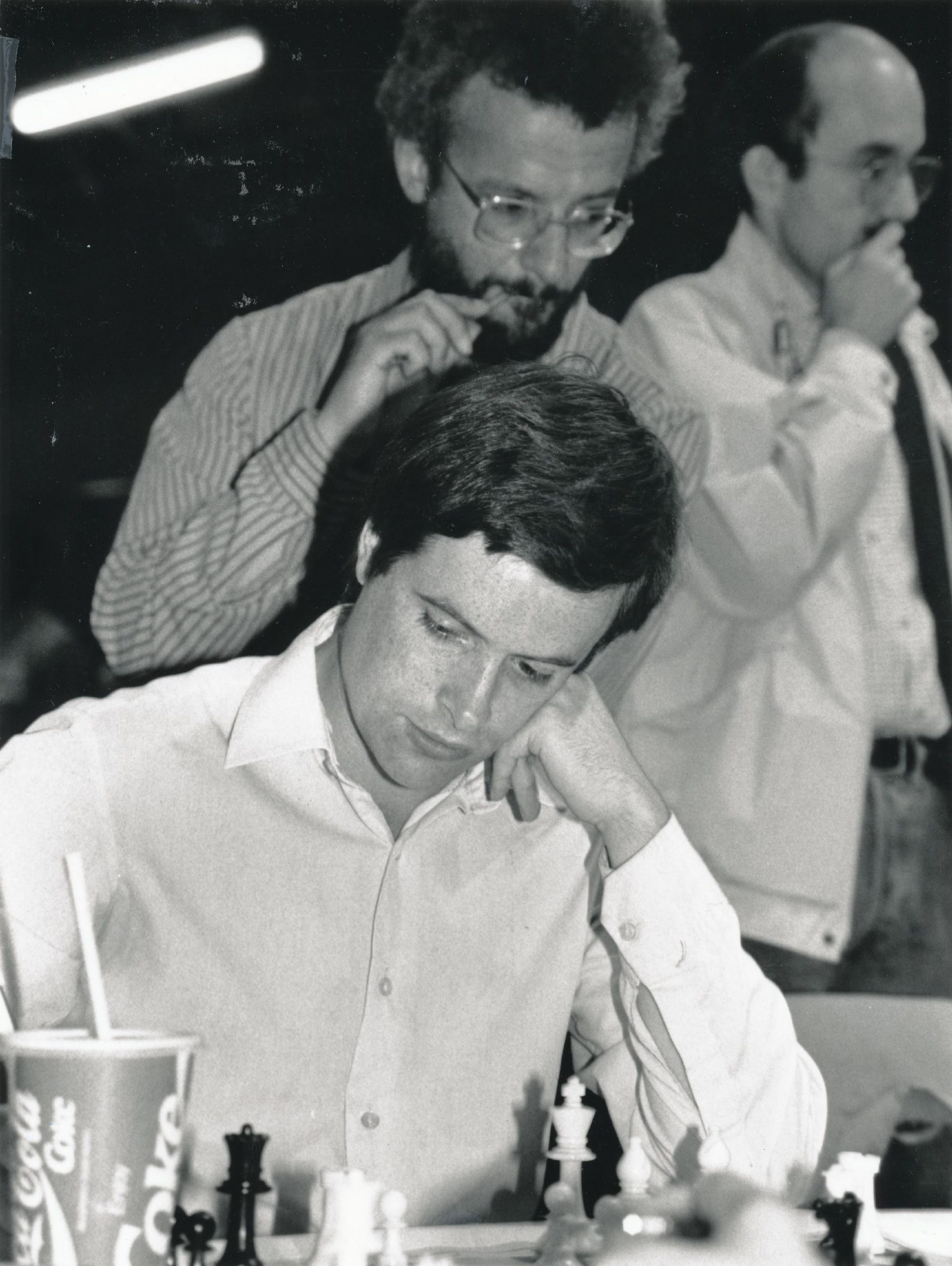
Here is Keith’s Wikipedia entry
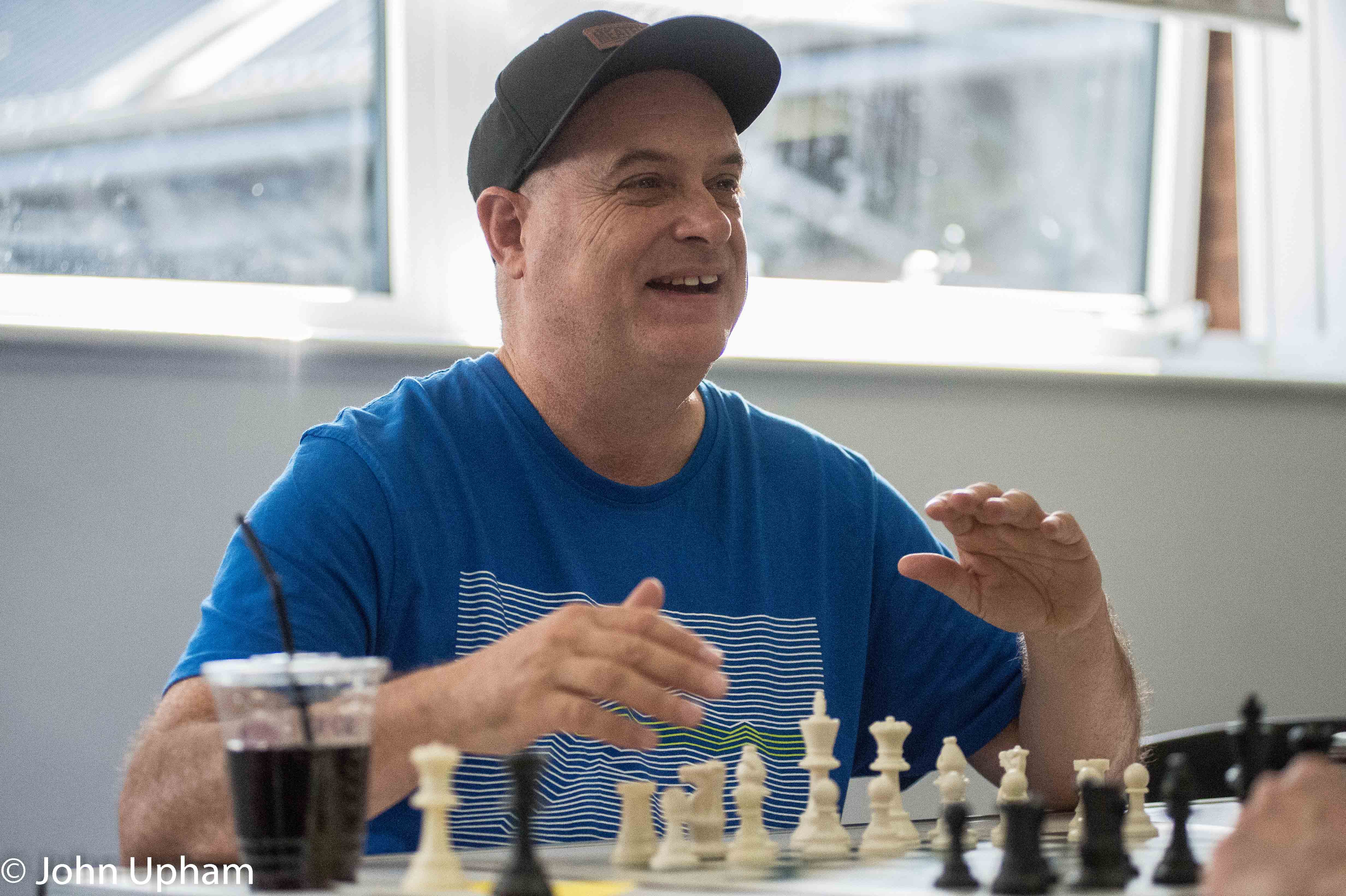
This was written about Keith aged 18 prior to the 1979 Spassky vs the BCF Junior Squad simultaneous display :
“Rednal, Birmingham. Rating 188. 2nd Lloyds Bank junior international, 1979.”
Keith was Southern Counties (SCCU) champion for the 2014-15 season sharing with Jonathan Hawkins
Here is an interview with ChessBase from 2016.
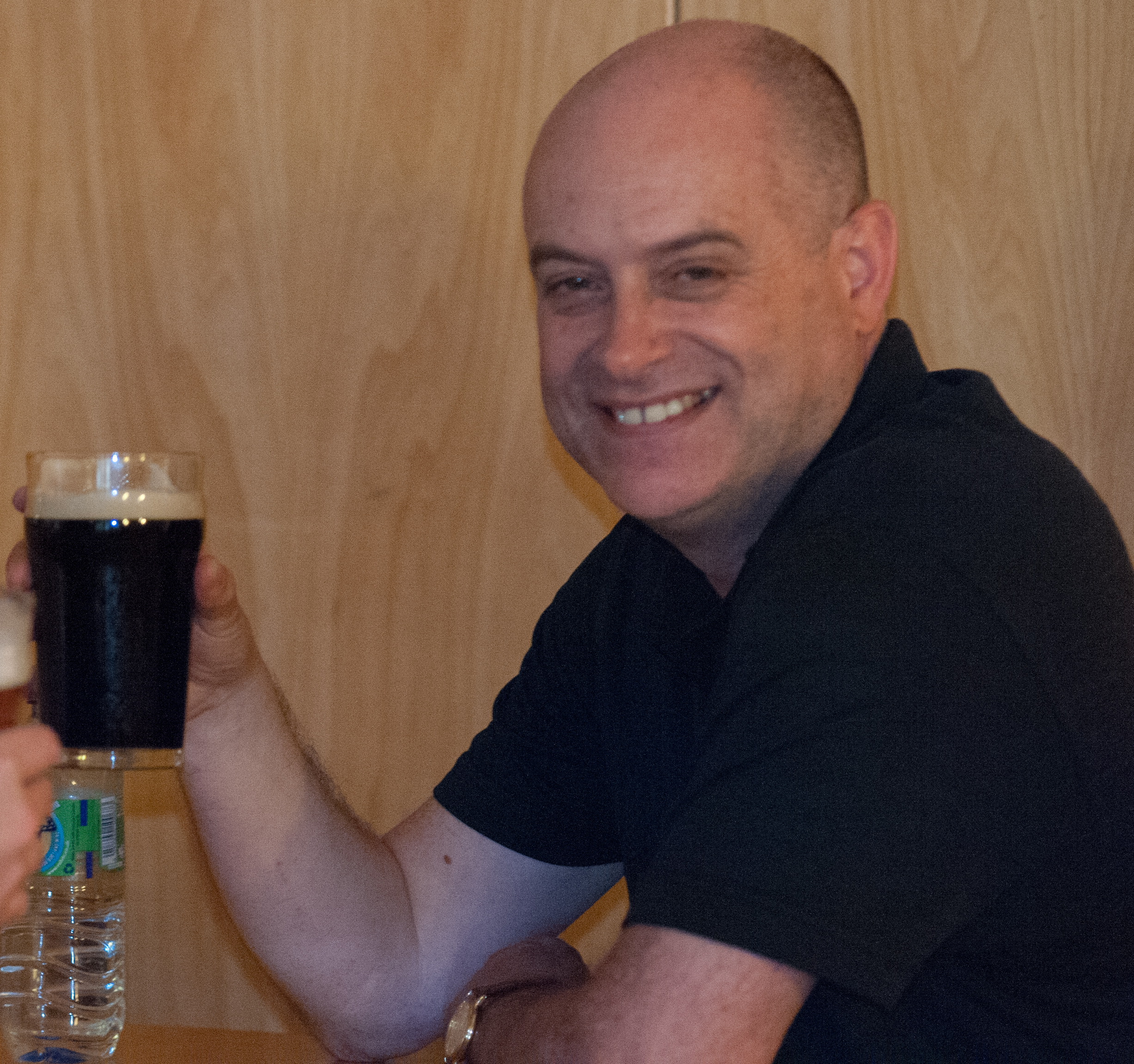
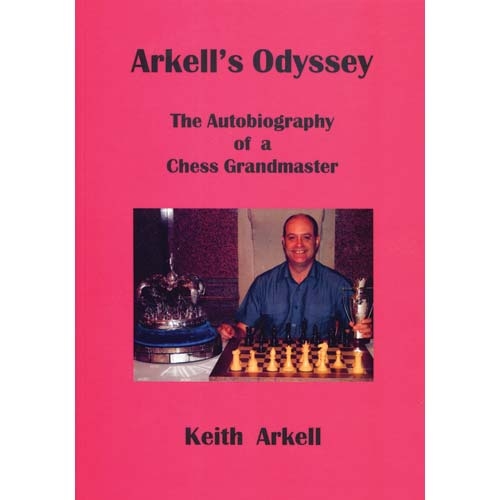
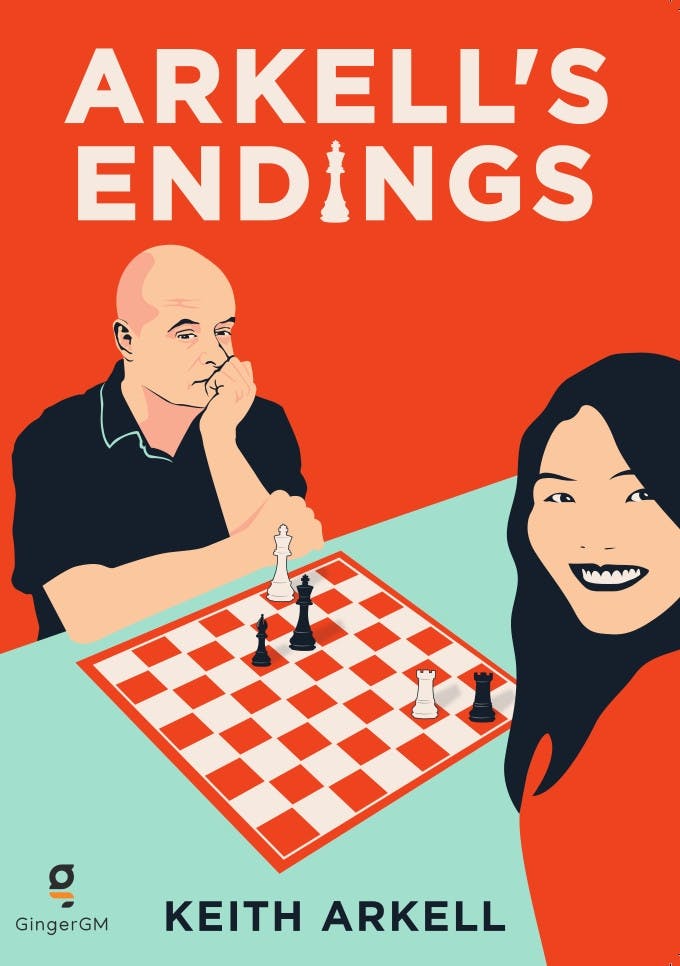
BCN has reviewed Arkell’s Endings in depth
Remembering FM Stephen H Berry (18-iii-1951 04-i-2019)
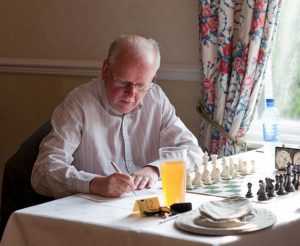
We remember FM Stephen H Berry who passed away, this day, January 4th 2019.
Stephen was born on Sunday, March 18th 1951.
He played for Wimbledon in the London League.
Here is his ECF rating record.
Obituary from Andrew Stone
Birthday of IM Byron Anthony Jacobs (25-vi-1963)

BCN wishes Happy Birthday to IM Byron Anthony Jacobs (25-vi-1963)
Byron originates from Sir John Betjeman’s favourite town (Slough) and attended Slough Grammar and then The University of Sussex (Falmer).
He was Standard London under-16 champion in 1979. He was 3rd= in the 1982 Danish U-18 International. He was 3rd= in the 1988 Guernsey Open. His last recorded event in Megabase 2020 was in 1998.
Byron became a FIDE Master in 1983 and an International Master and in 1988 achieved a peak rating of 2390 in July 1987 at the age of 24.
Having given up competitive chess Byron became a successful poker player and commentator and has written on the subject.
Byron is a director of Brighton based First Rank Publishing and is specialist chess typesetter and Chief Advisor for Everyman Publishing and others and was pivotal in Brighton based, Chess Press.
Byron was the typesetter for British Chess Magazine from 2011 – 2012.
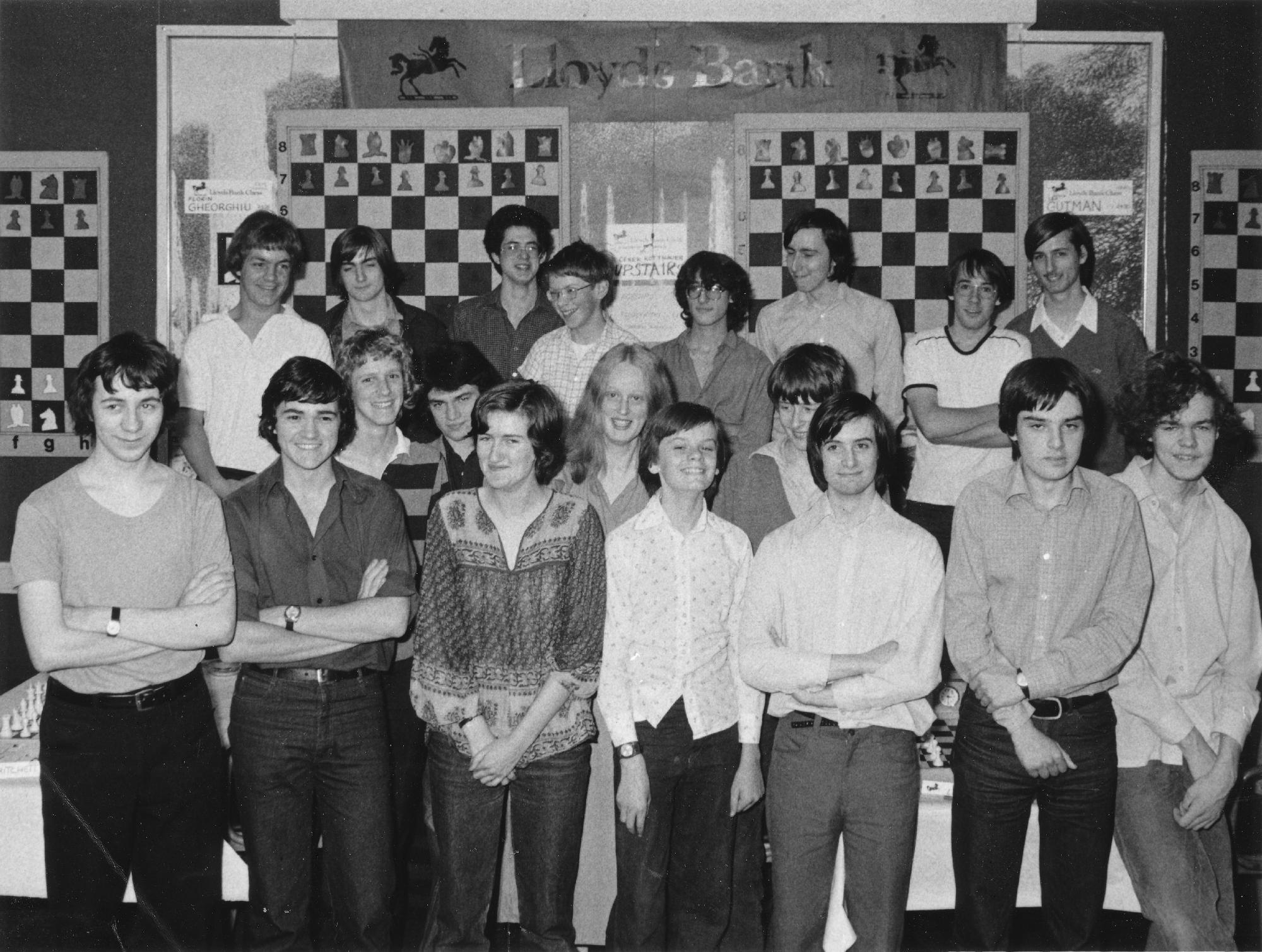
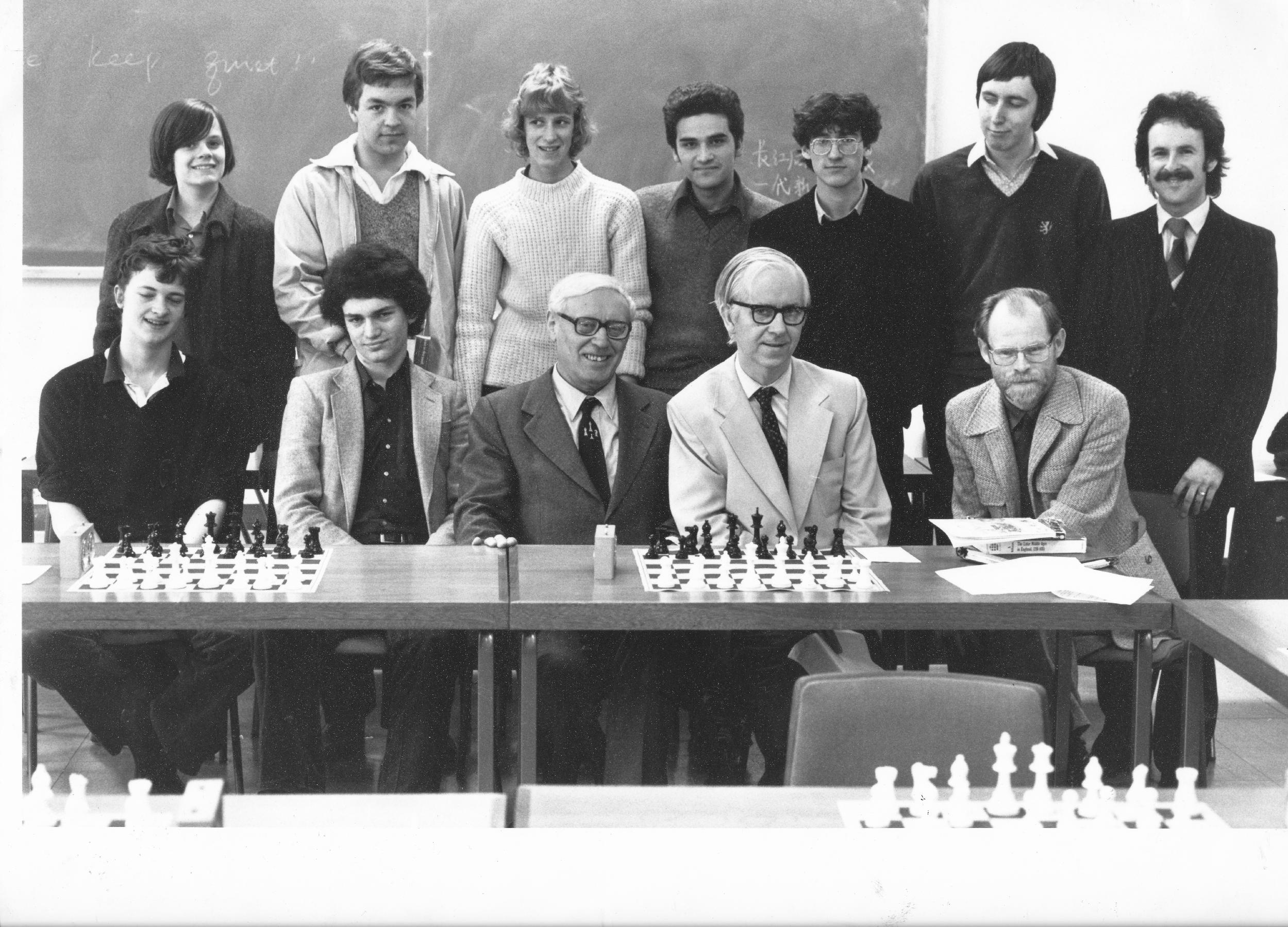
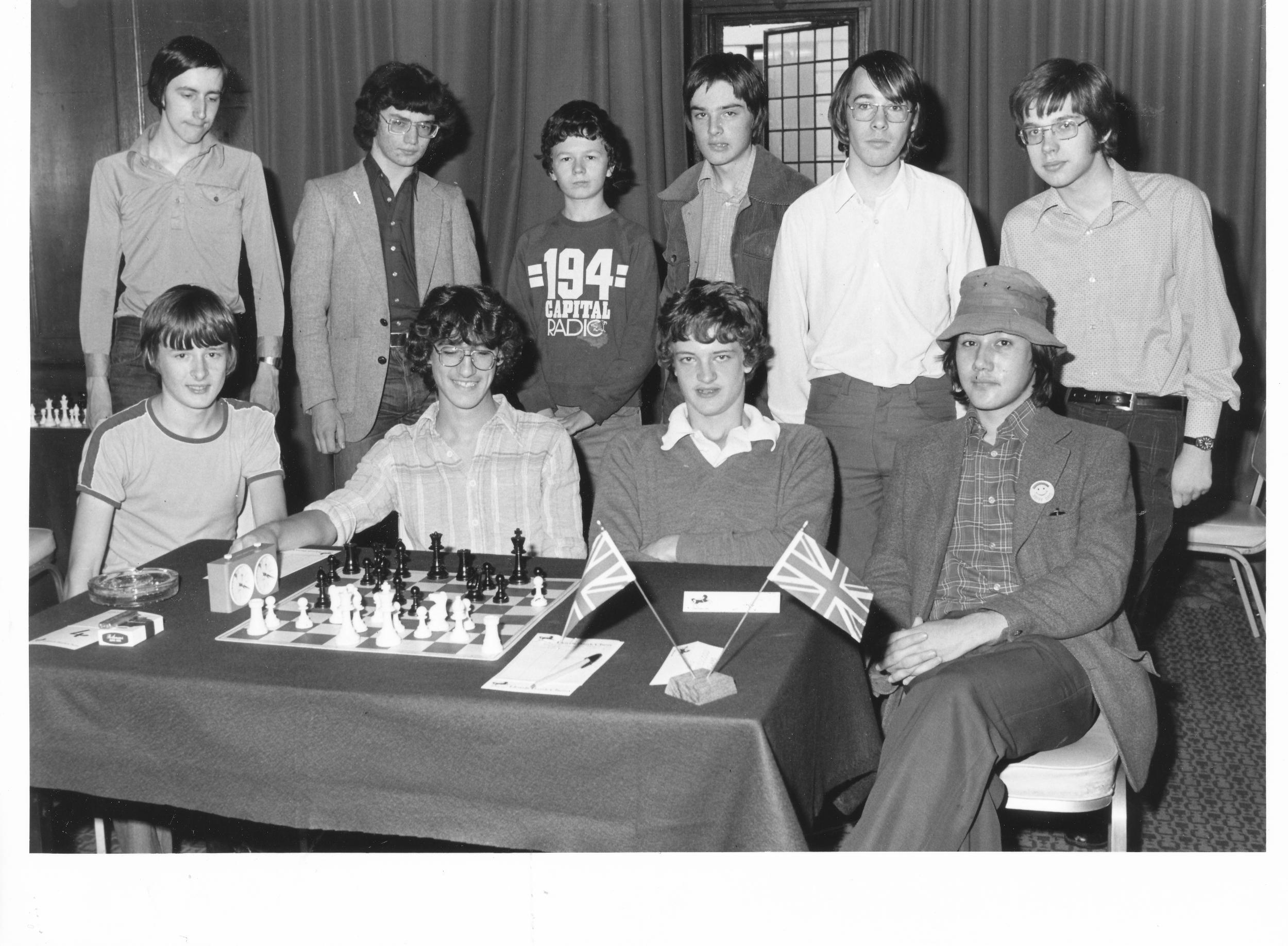
Byron is an accomplished chess author with many titles to his name :
